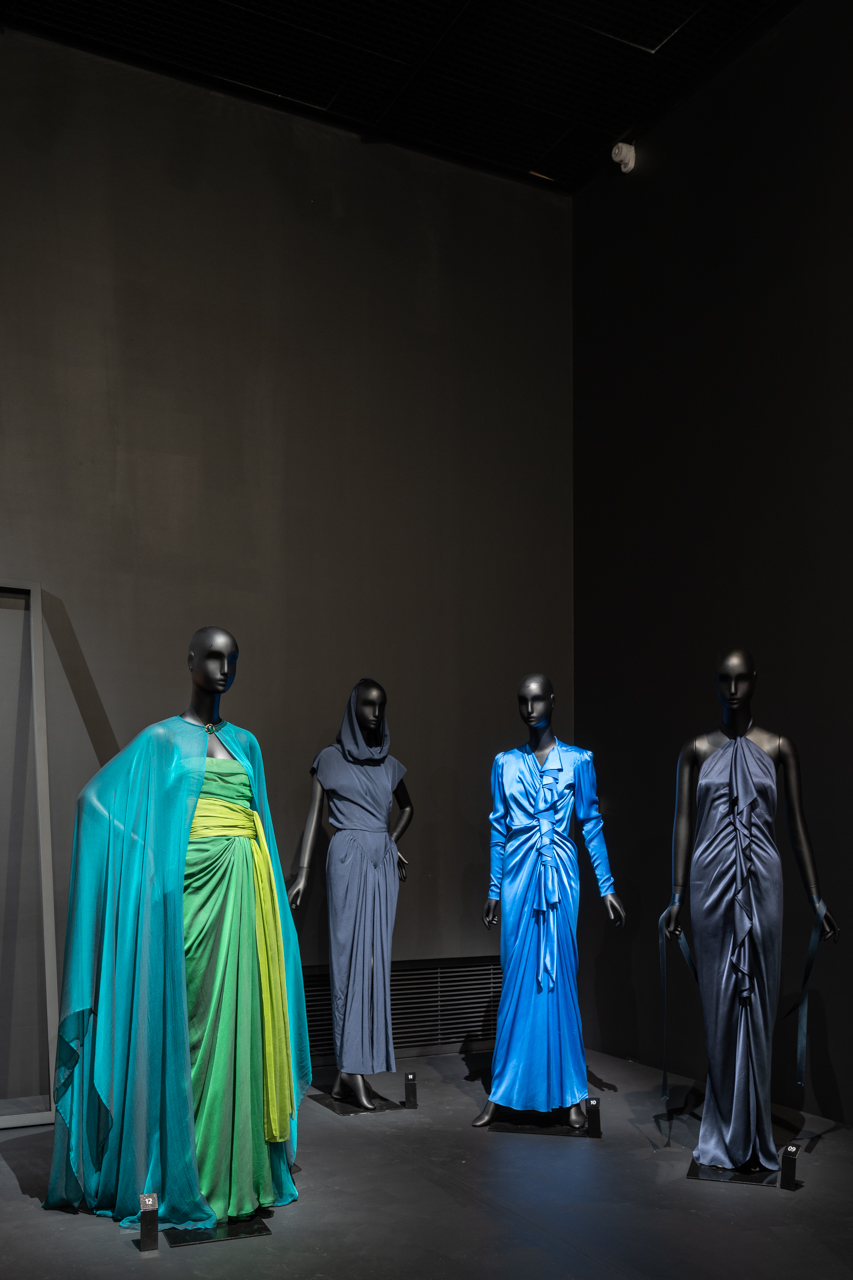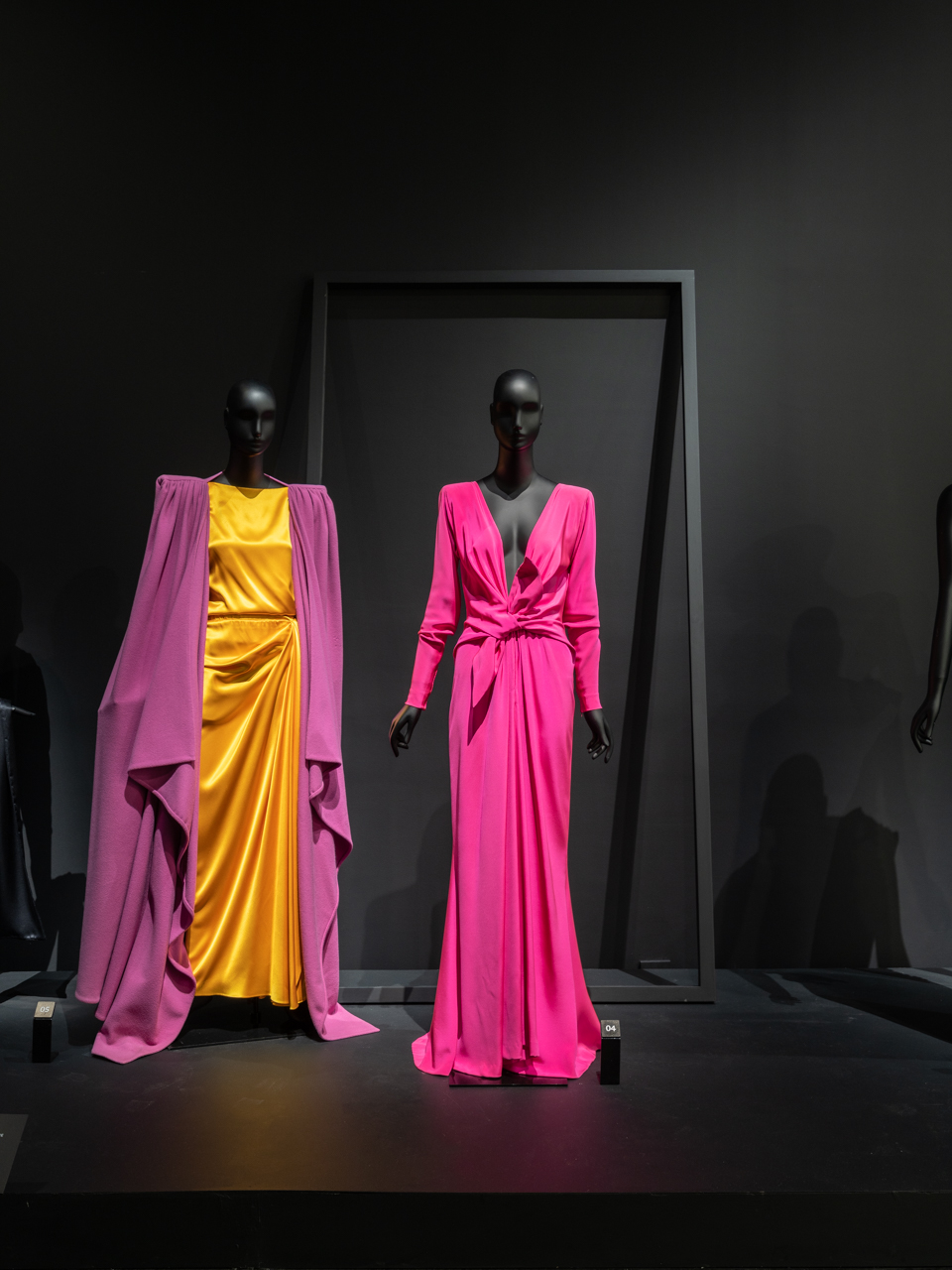A New Foot Forward

Gabriel’s first CamperLab collection will be shown in January for the A/W ’20 season. office can’t wait to see what the designer has in store.
Stay informed on our latest news!

Gabriel’s first CamperLab collection will be shown in January for the A/W ’20 season. office can’t wait to see what the designer has in store.

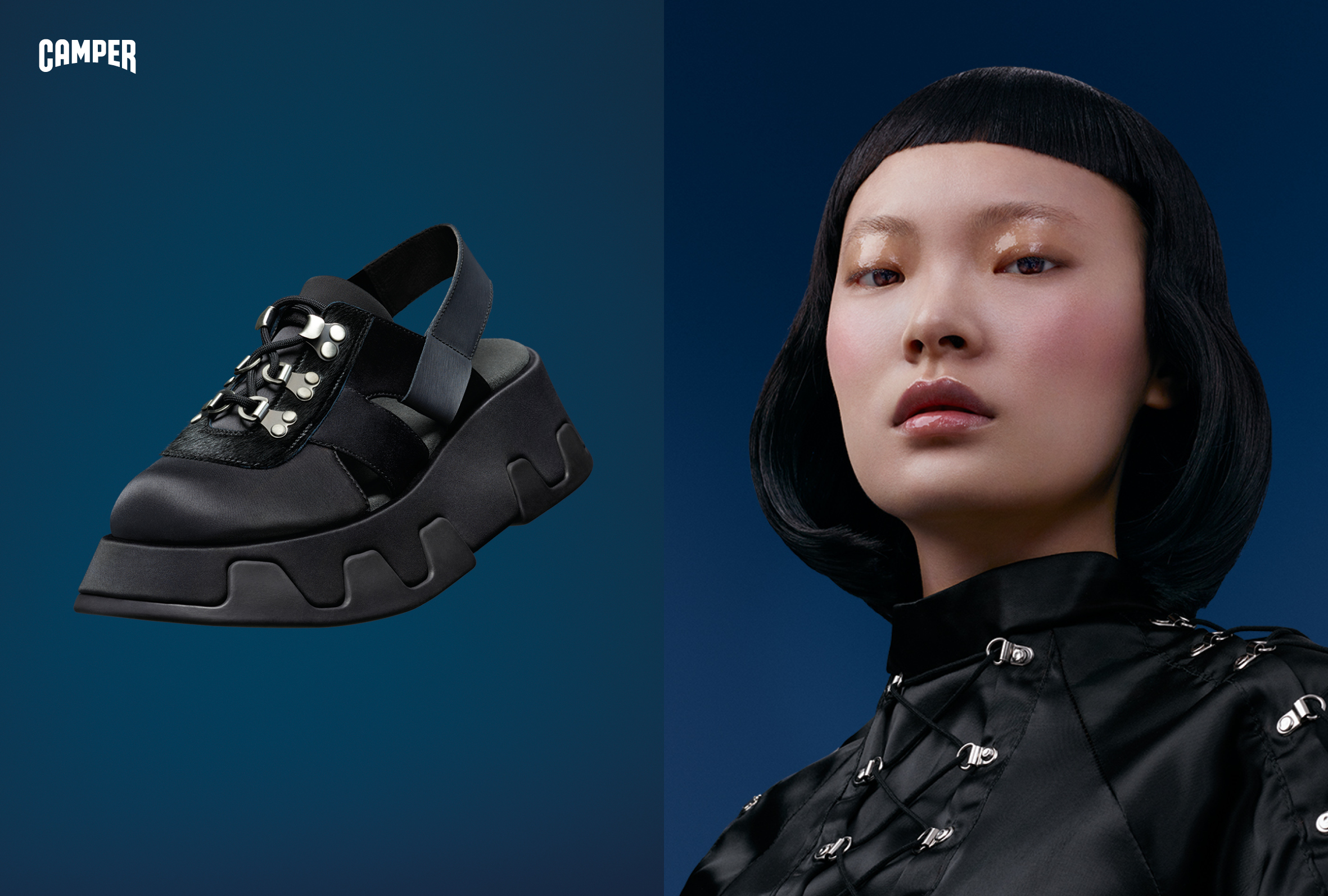
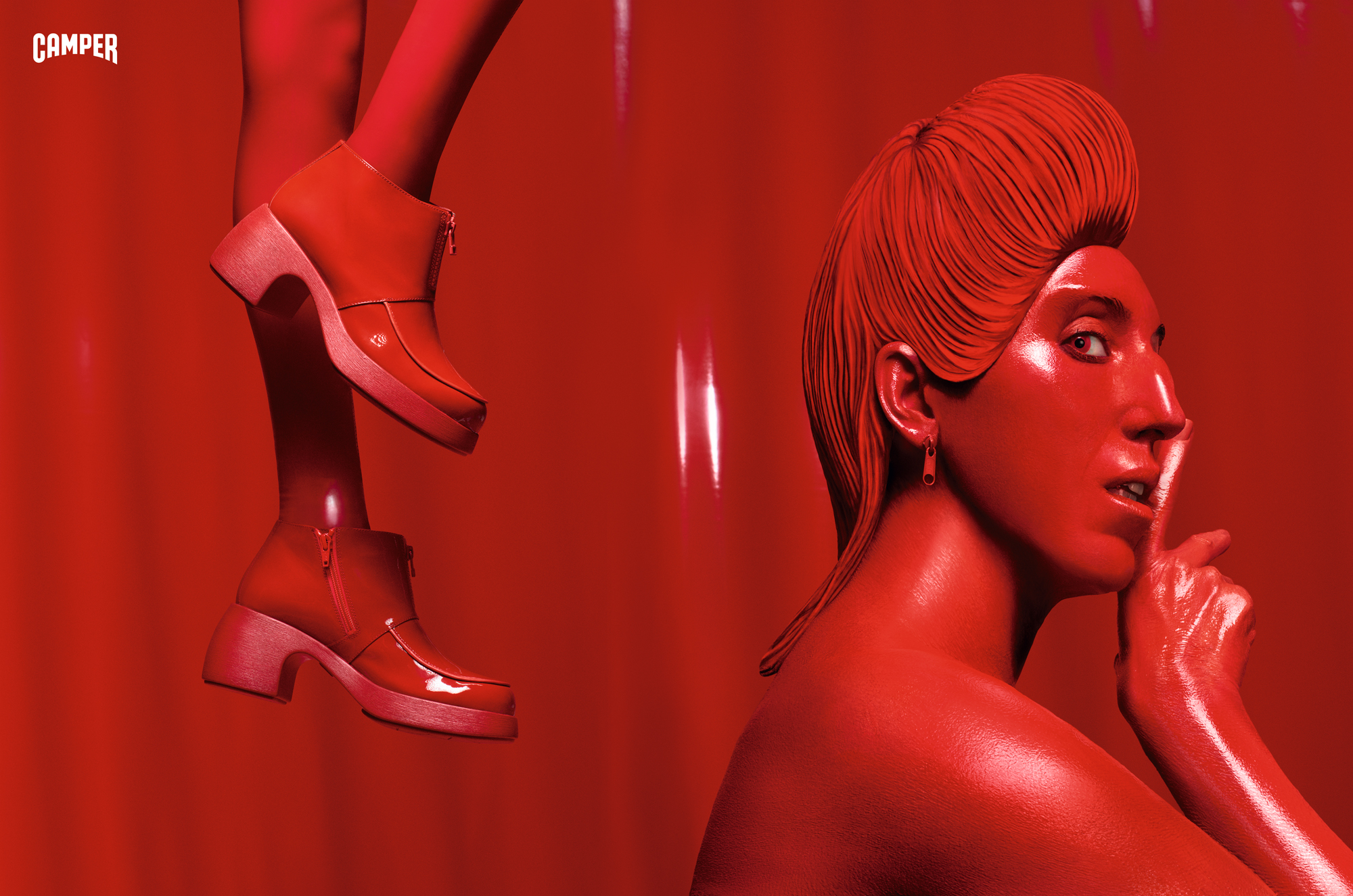
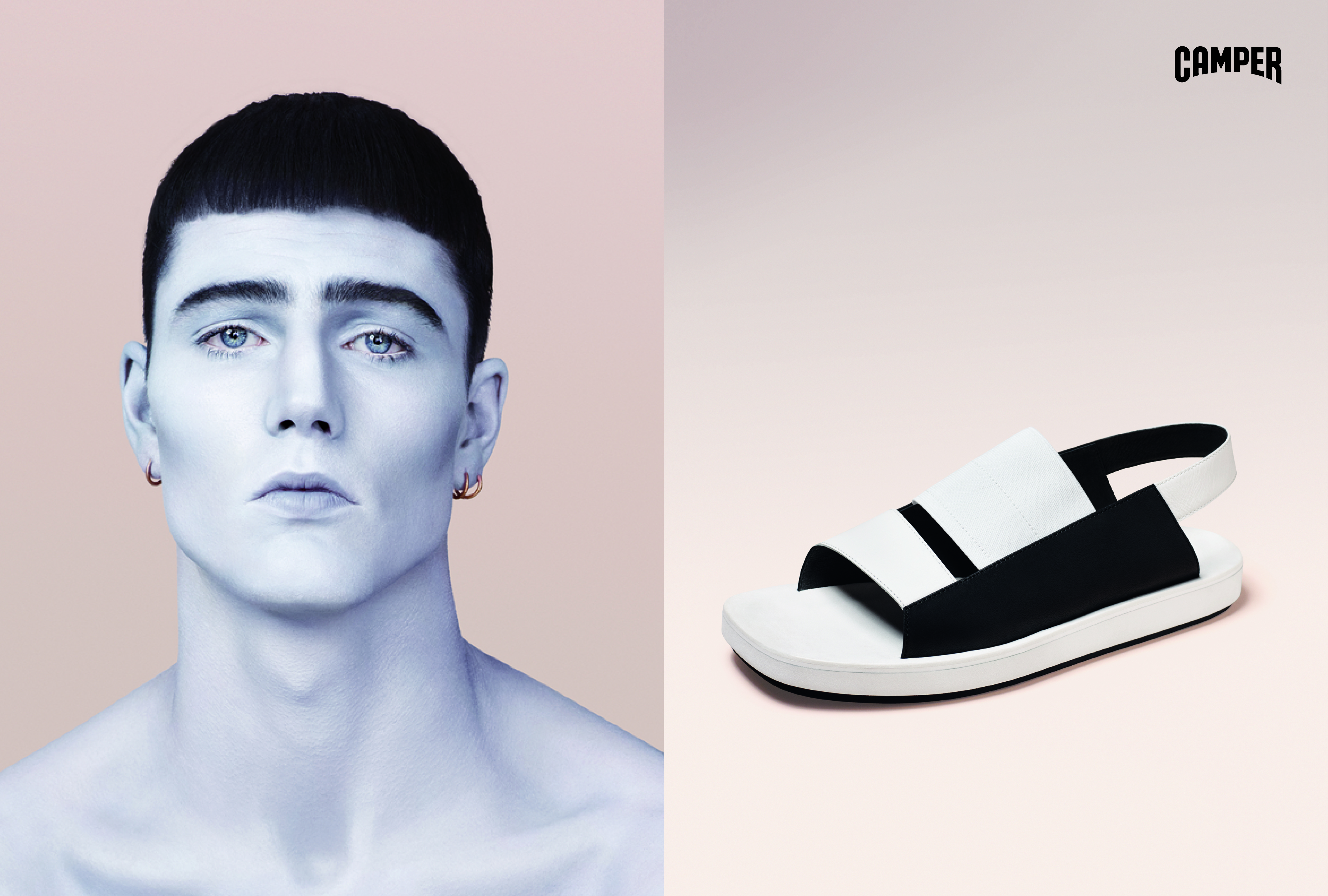
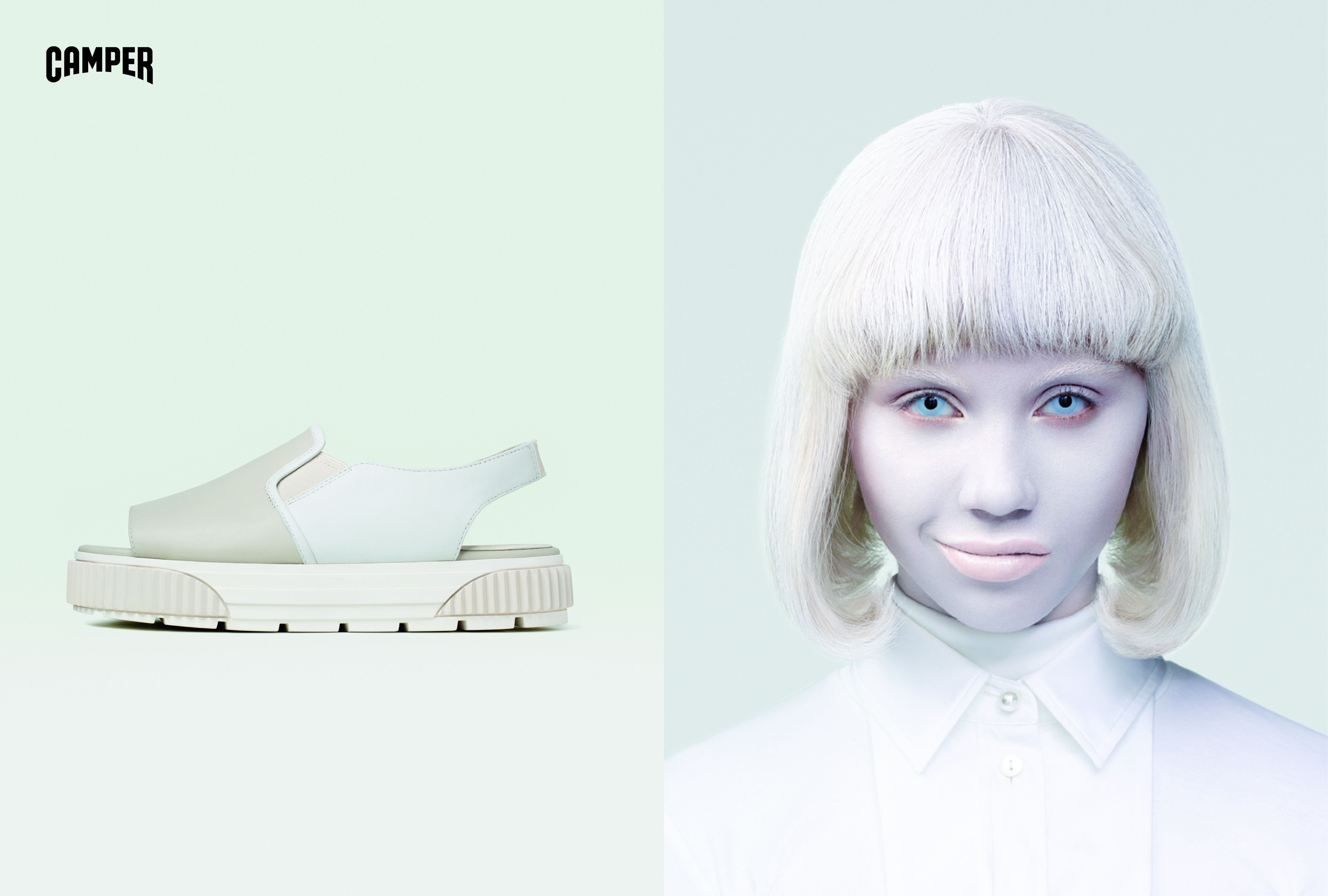
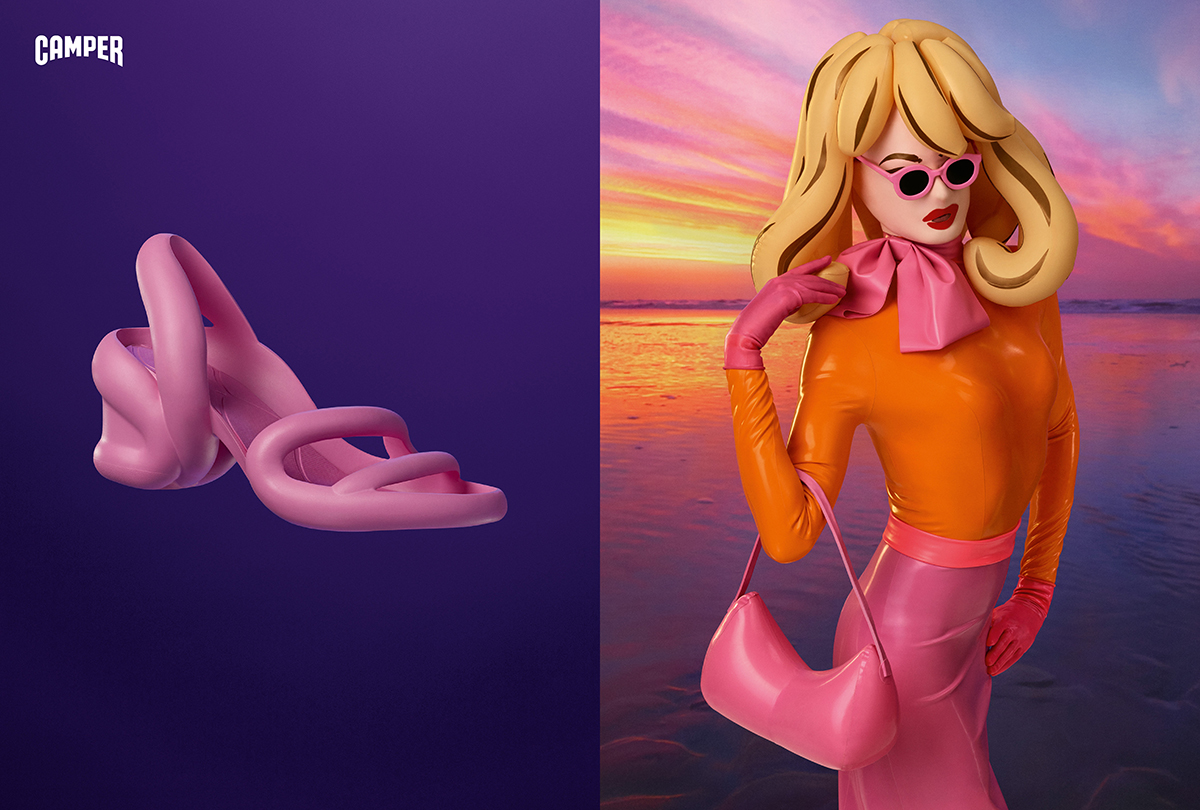
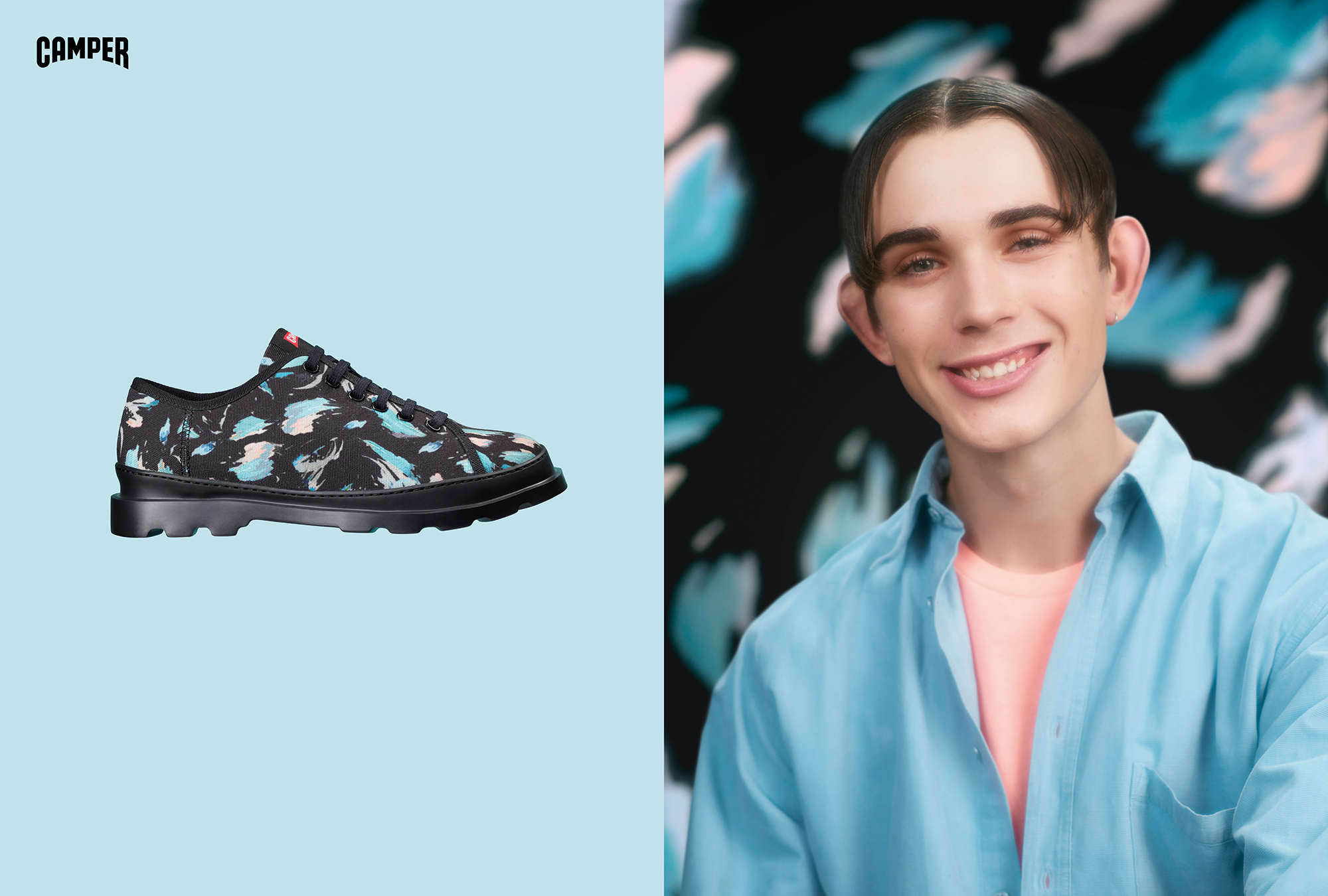
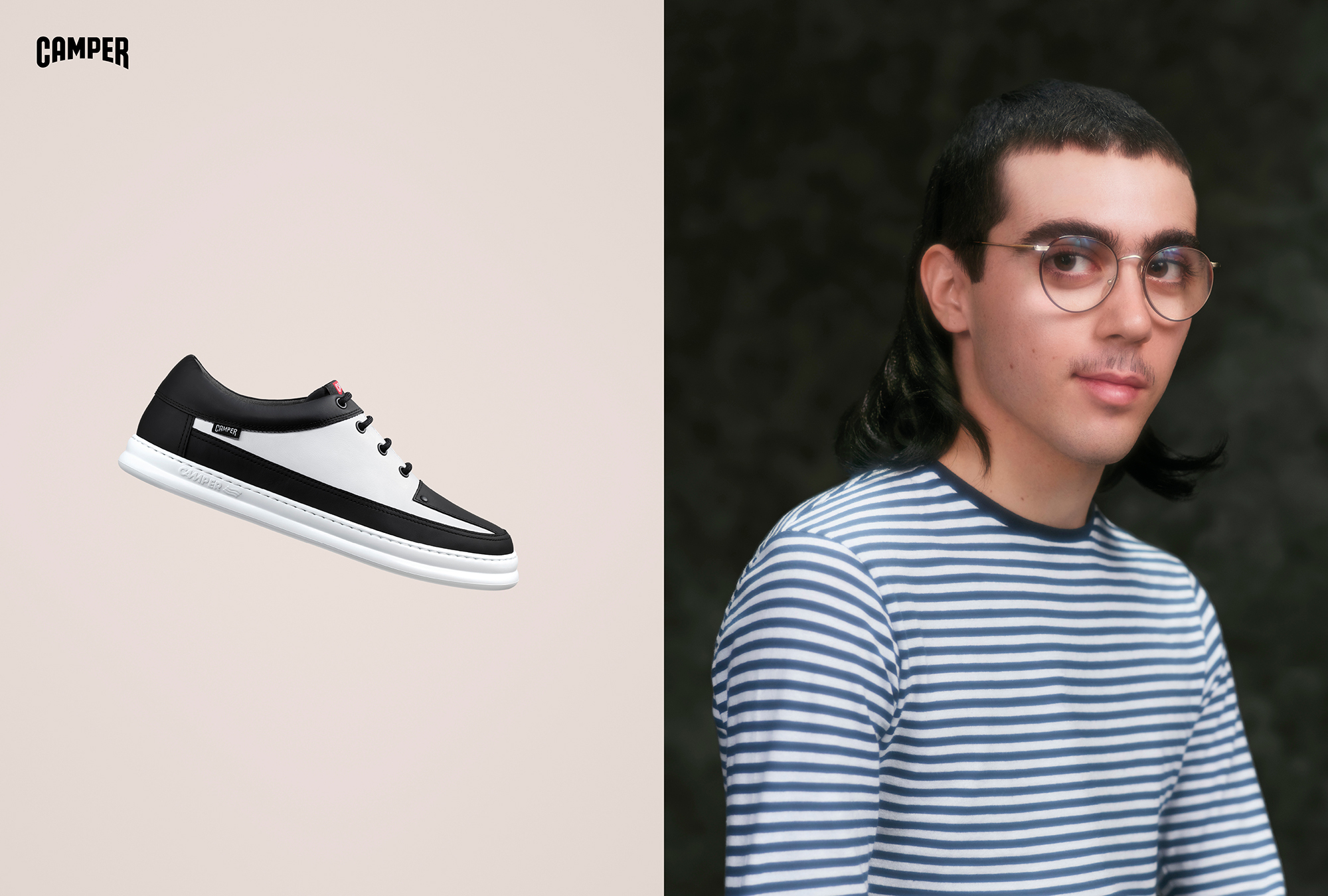
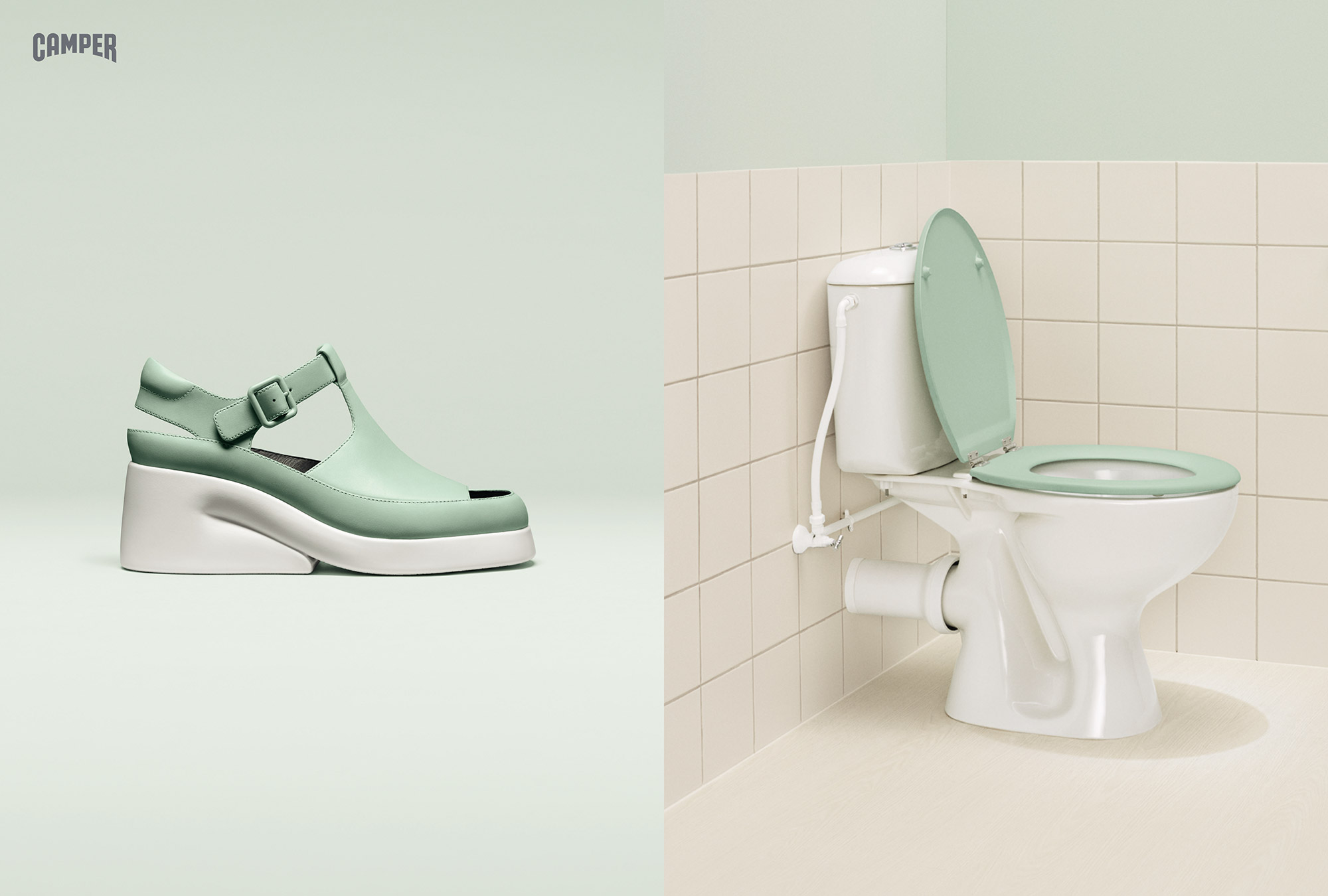
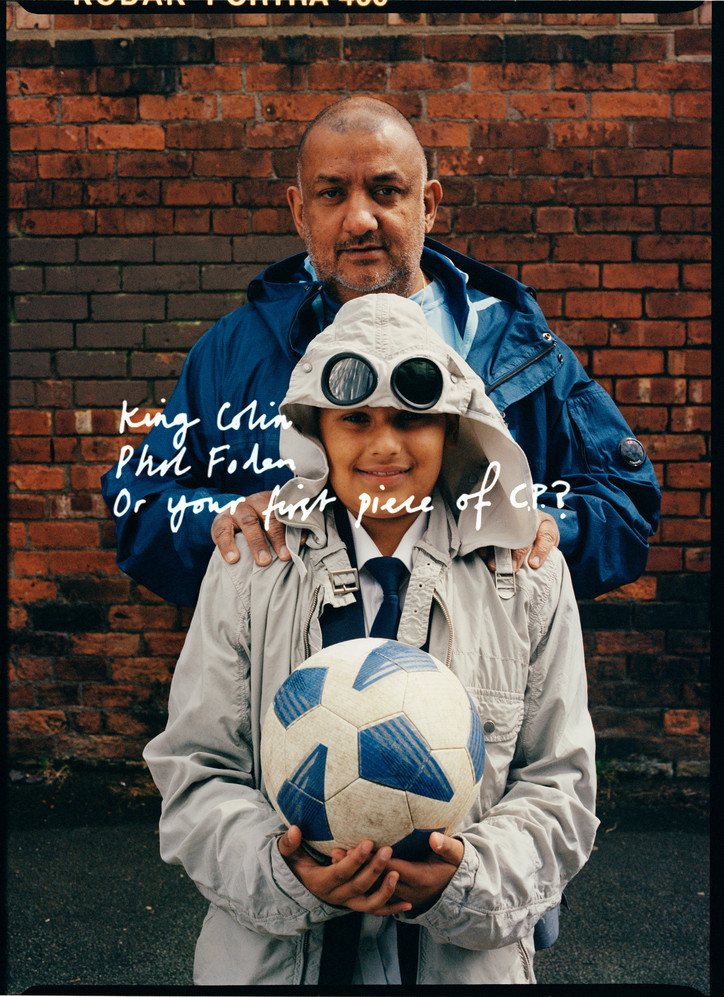
This makes Manchester City F.C’s new collaboration with C.P. Company even more fitting. Manchester knows its outerwear, and City’s team and staff will be outfitted in full C.P. Company gear for their upcoming Champions League campaign. The range features the perfect rainy-day colors of both C.P. Company (navy blue) and Manchester City (light blue), including the highly coveted ‘Goggle’ jacket. This iconic piece has a unique presence on the terraces, and C.P. Company has long been at the forefront of football fandom and match-day fits. In fact, this collaboration brings C.P. Company’s authentic football journey full circle. In the 80s, English football fans traveled to Europe to support their teams and returned home with hard-to-find gear.
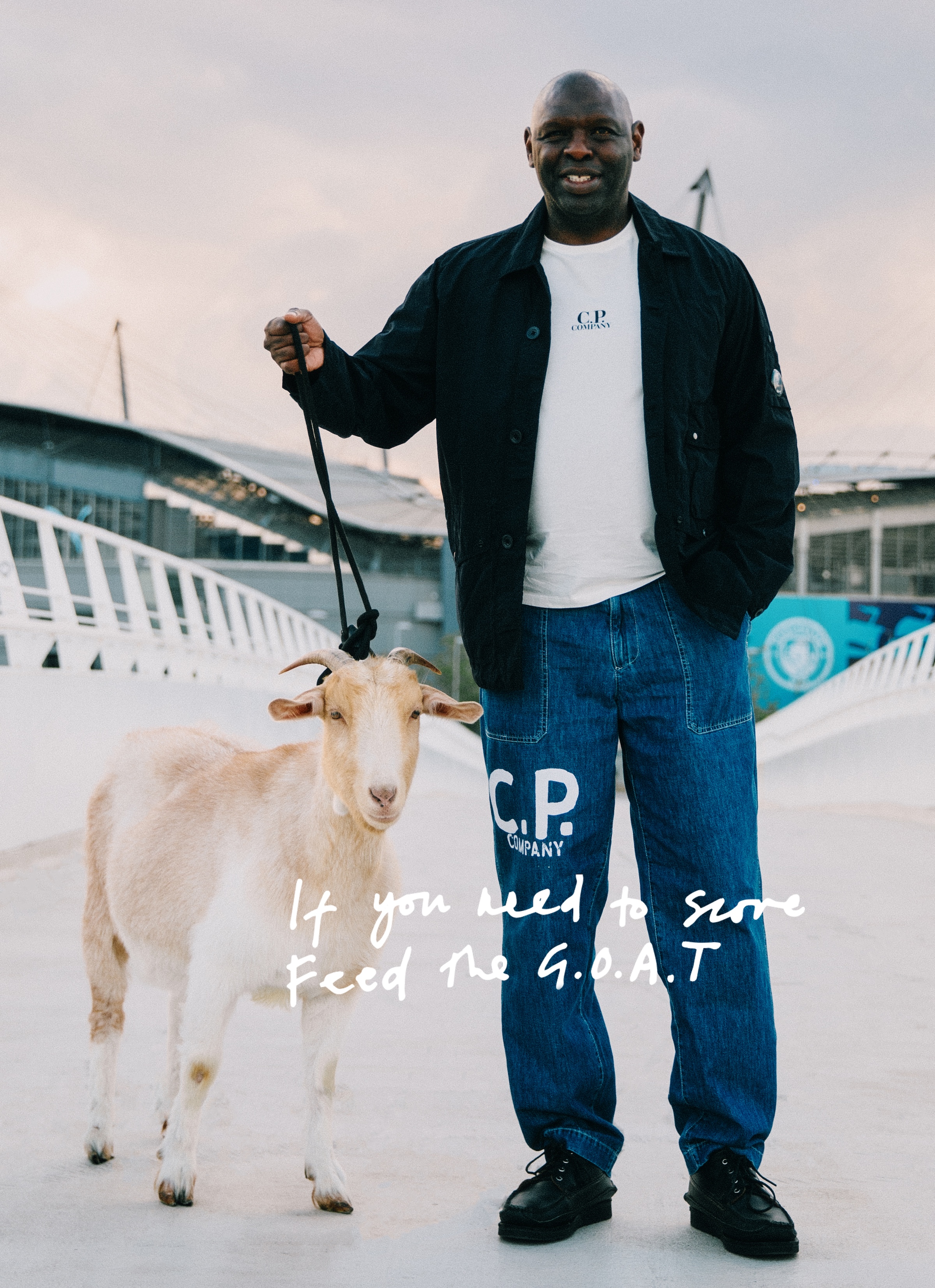
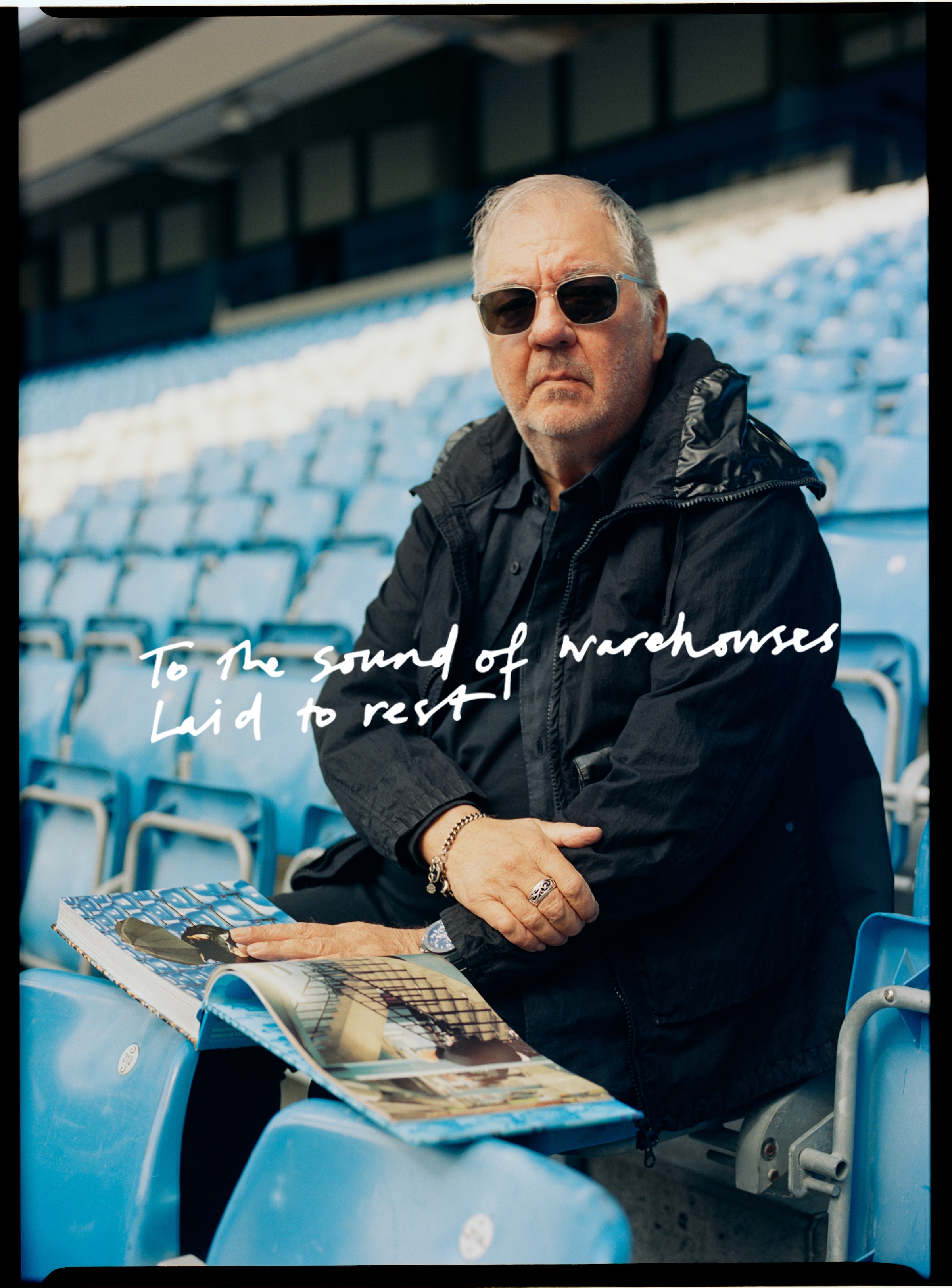
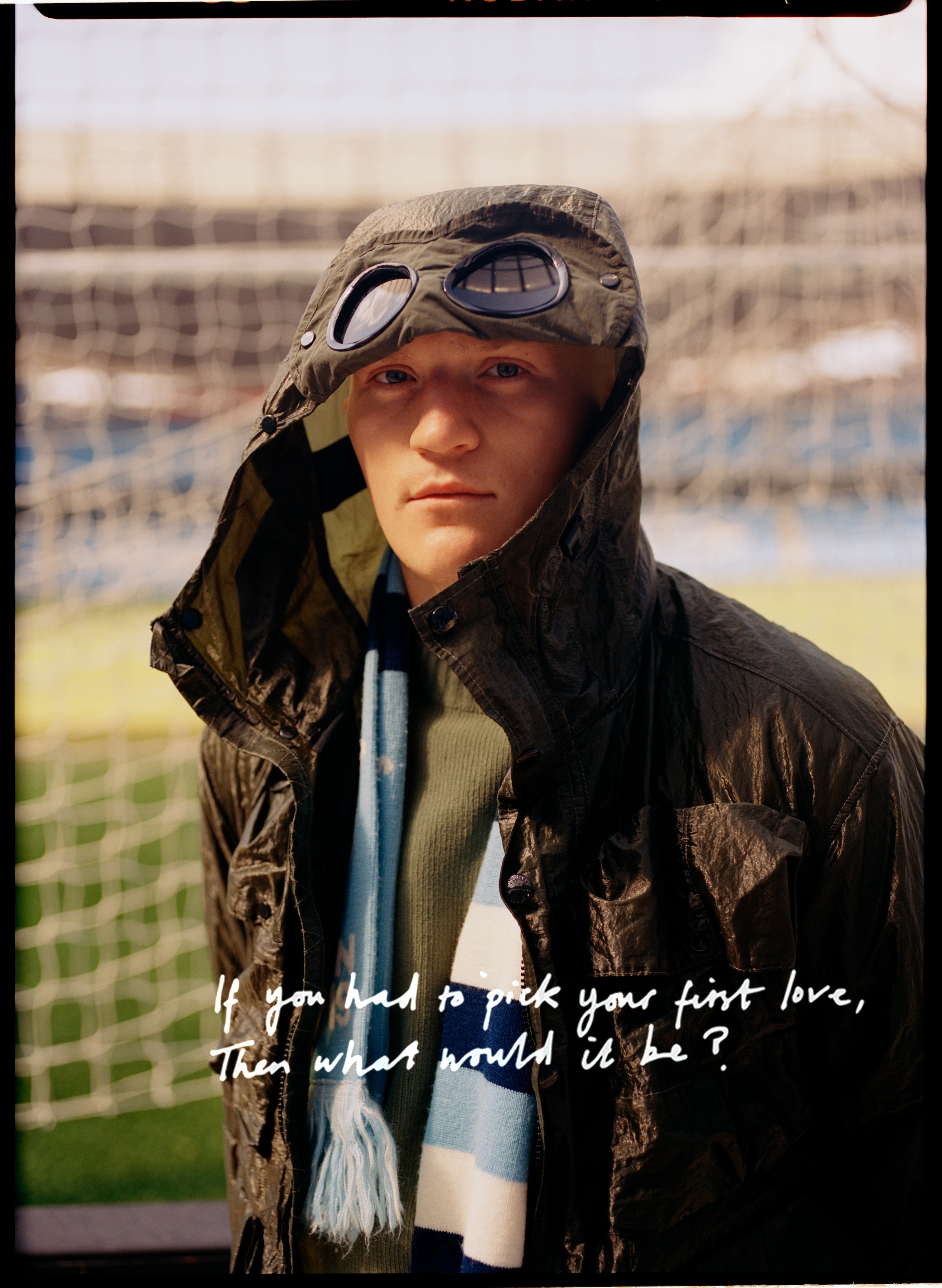
Brands like C.P. Company gained a devoted following that has remained steadfast ever since, and with this new collaboration, that support will only grow & grow. Watch the full video here.
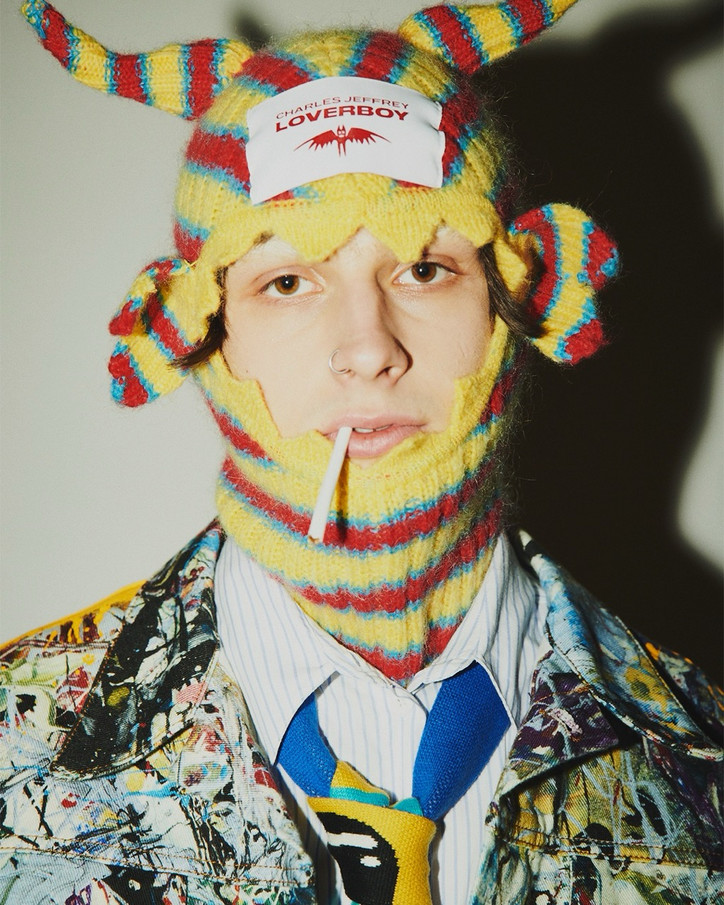
Fast forward to 2024, Charles Jeffrey LOVERBOY's F/W 2024 collection draws parallels between Moshkirk's resililence and today's challenges. Amid economic crises, and social upheaval, creativity often flourishes, and FW24 embodies that spirit — an ode to Moshkirk, Scotland and the rebellious subcultures that persist. Drawing inspiration from the whimsical Booness Monster — the heart-stealing serpent that stalks the cold waters near the mythical village of Moshkirk — the collection blends the magical with the absurd, celebrating the brand's playful essence while staying firmly rooted in reality.
The campaign features a punkish Moshkirk beat scored by Charles Jeffrey’s band, transporting listeners back to 1979 with its joyful, clubland aesthetic. The accompanying music video is a visual feast of playful madness: a crocodile drummer, a magical red suit with eyes, and banana peel shoulders. Celebrating its tenth anniversary in 2024, Charles Jeffrey LOVERBOY views AW24 not just as a collection but as a precursor to future endeavors. "It’s joy, it’s color, it’s Scottish magic, it’s playfulness."
The collection features silky black jacquard monogram suits with oversized safety pins, zebra print boots, anarchic yellow zip-up tops, cherry red double-breasted coats, and ethical knitwear adorned with monstrous elements; Charles Jeffrey LOVERBOY’s unique tartan, traditional Argyle, and post-punk aesthetics are woven throughout. Preview the collection below.
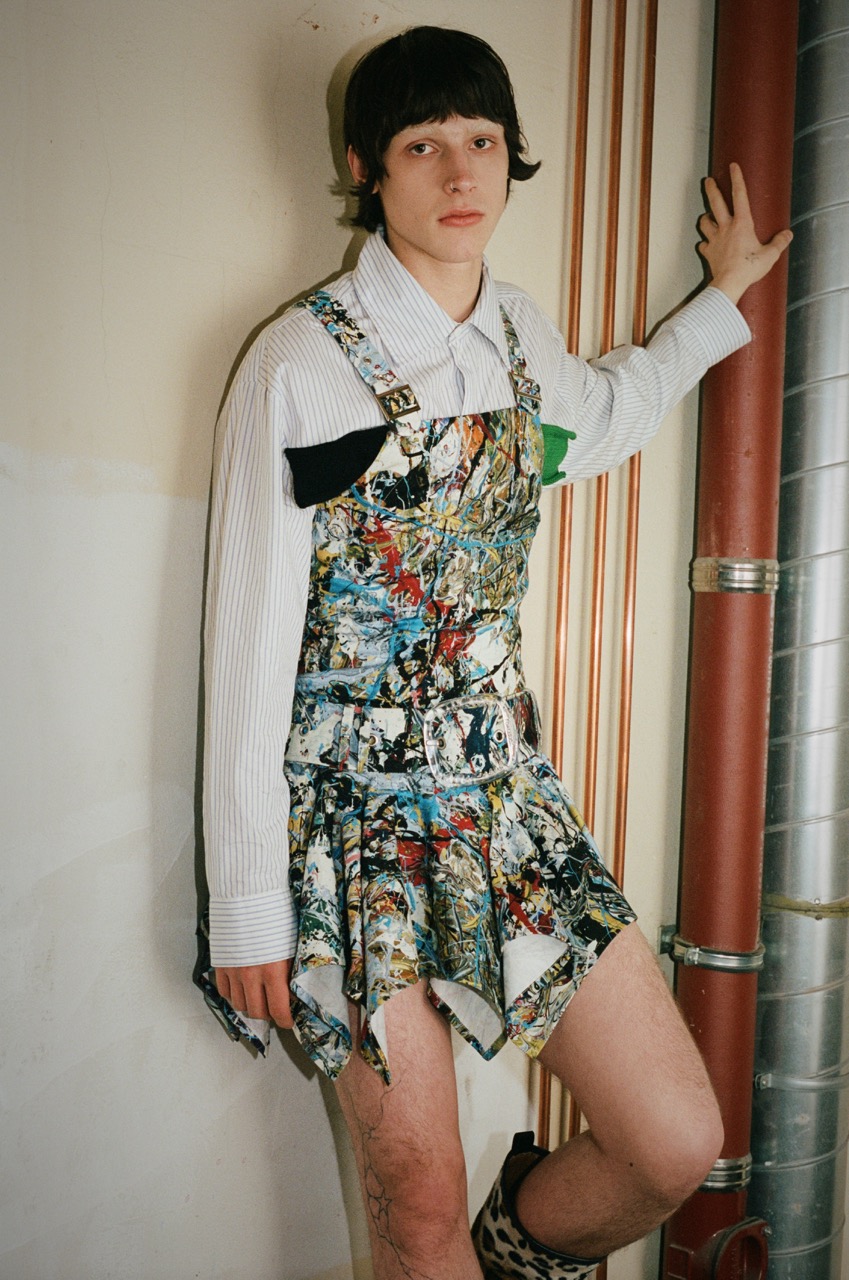
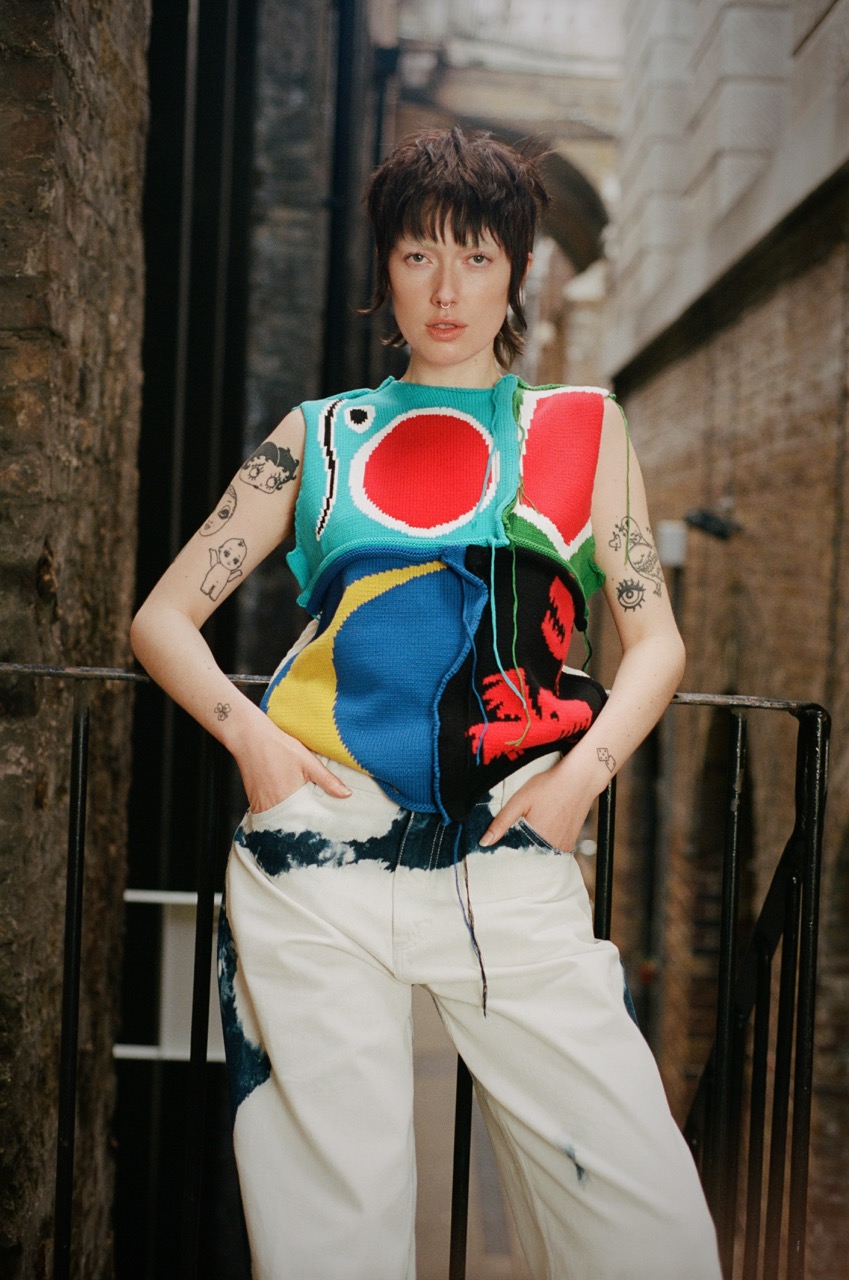
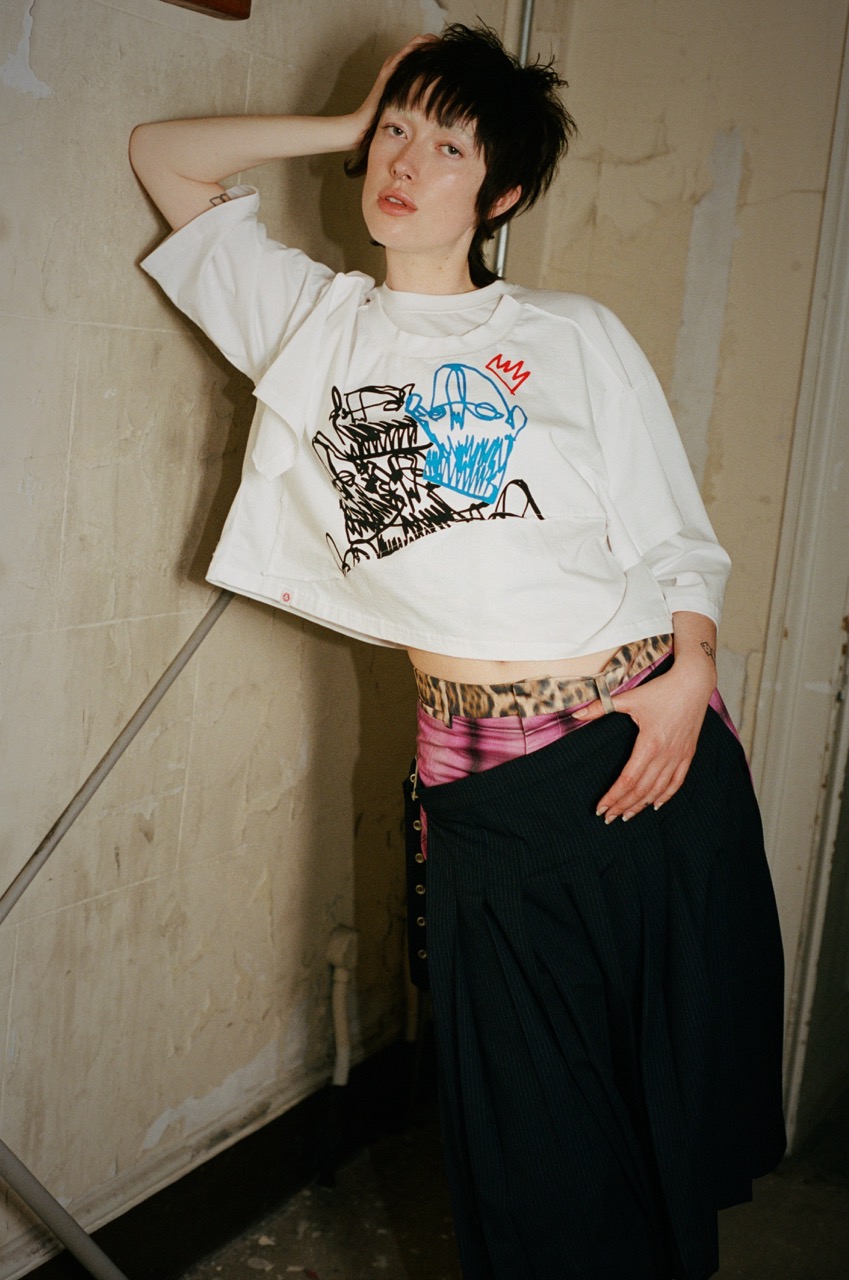
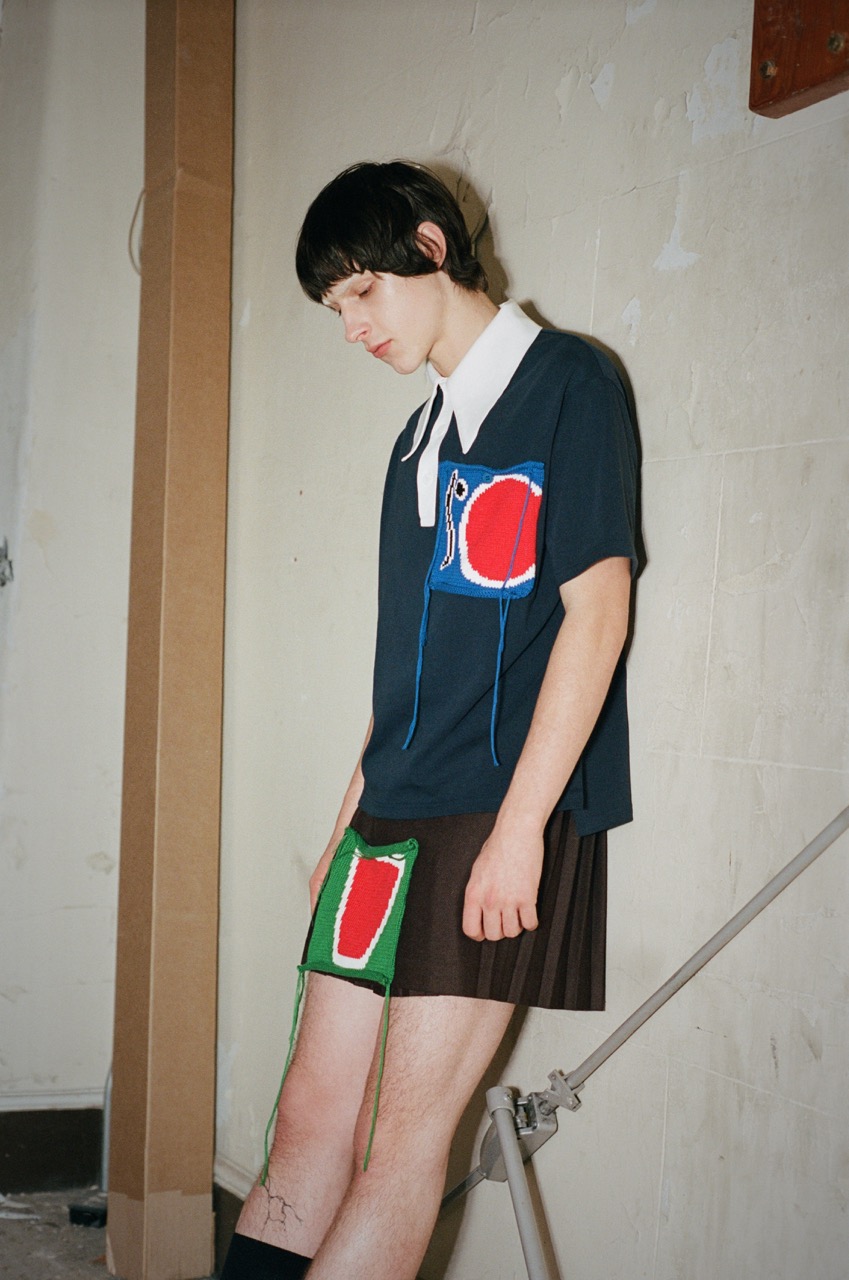
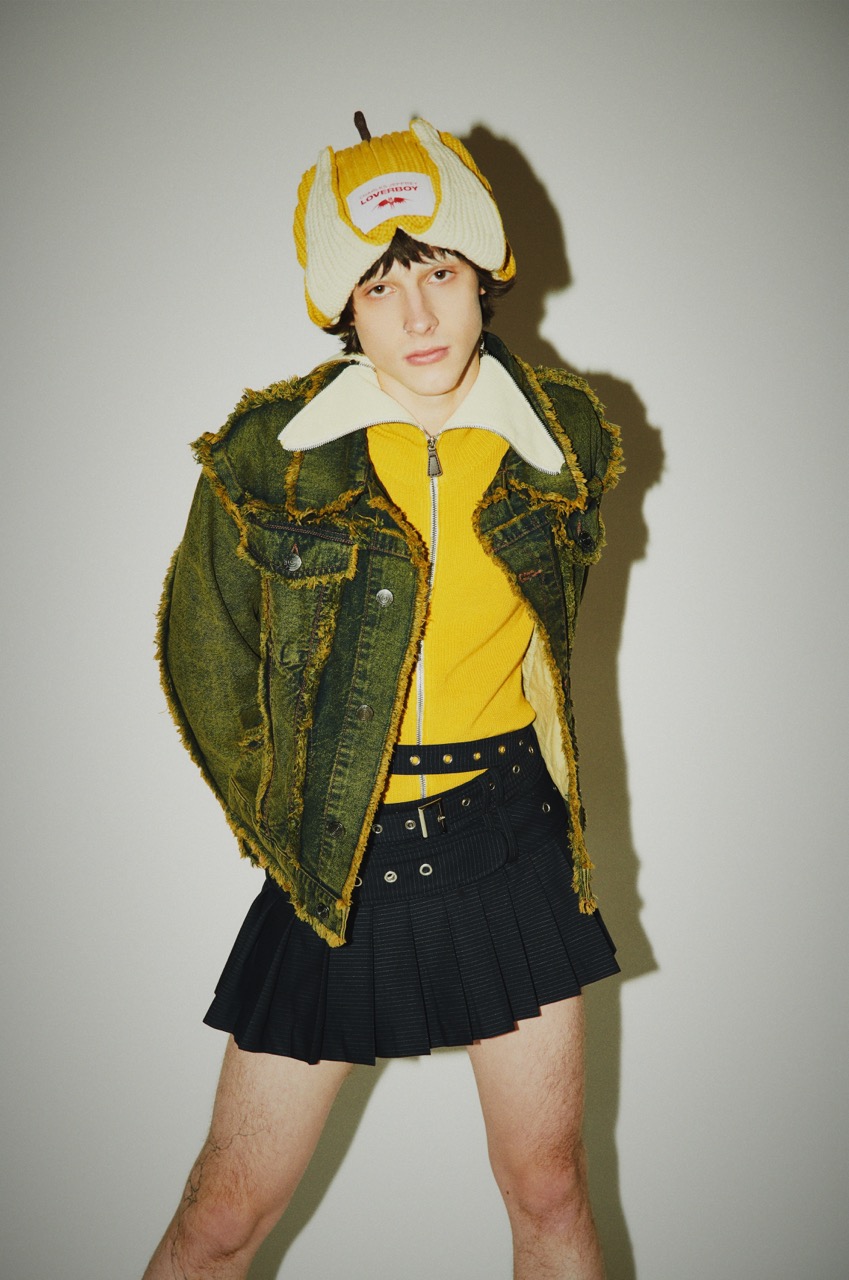
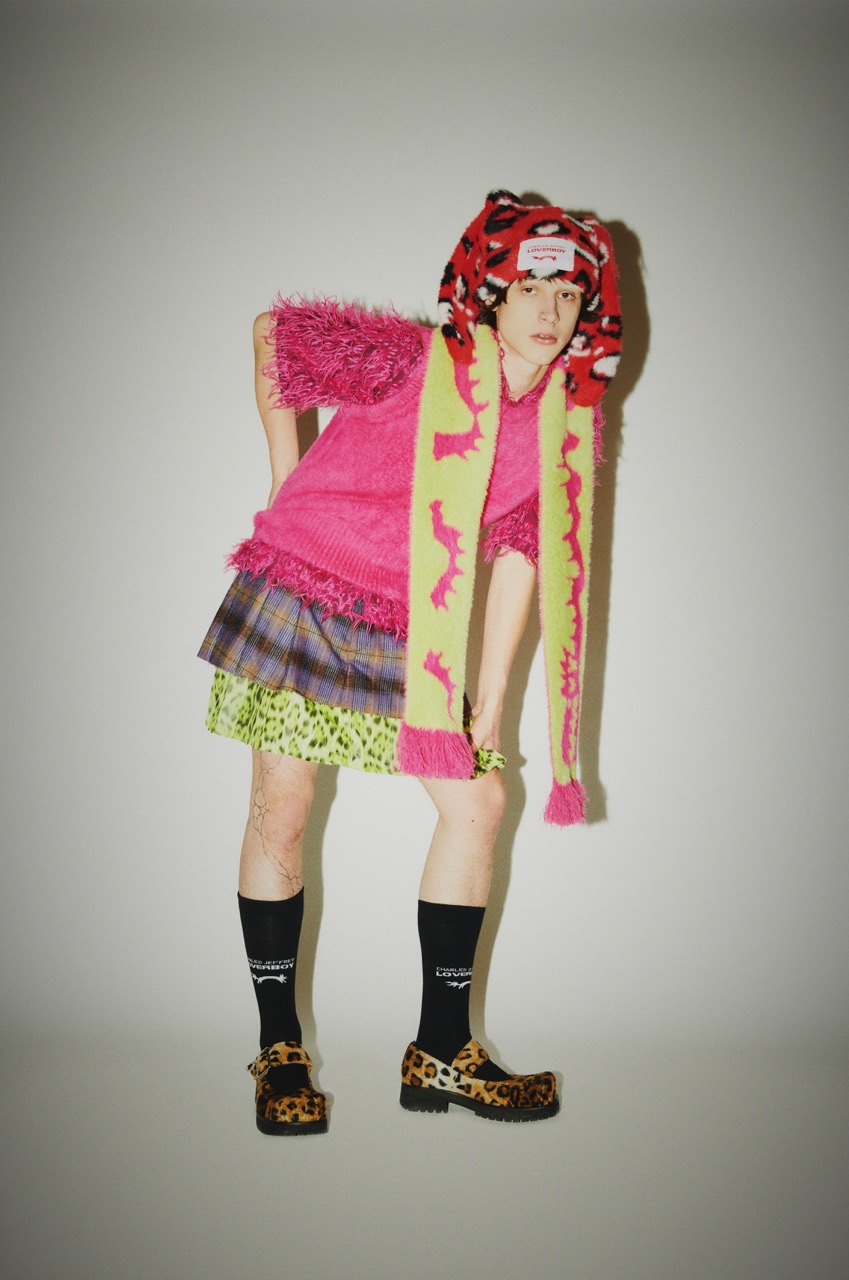
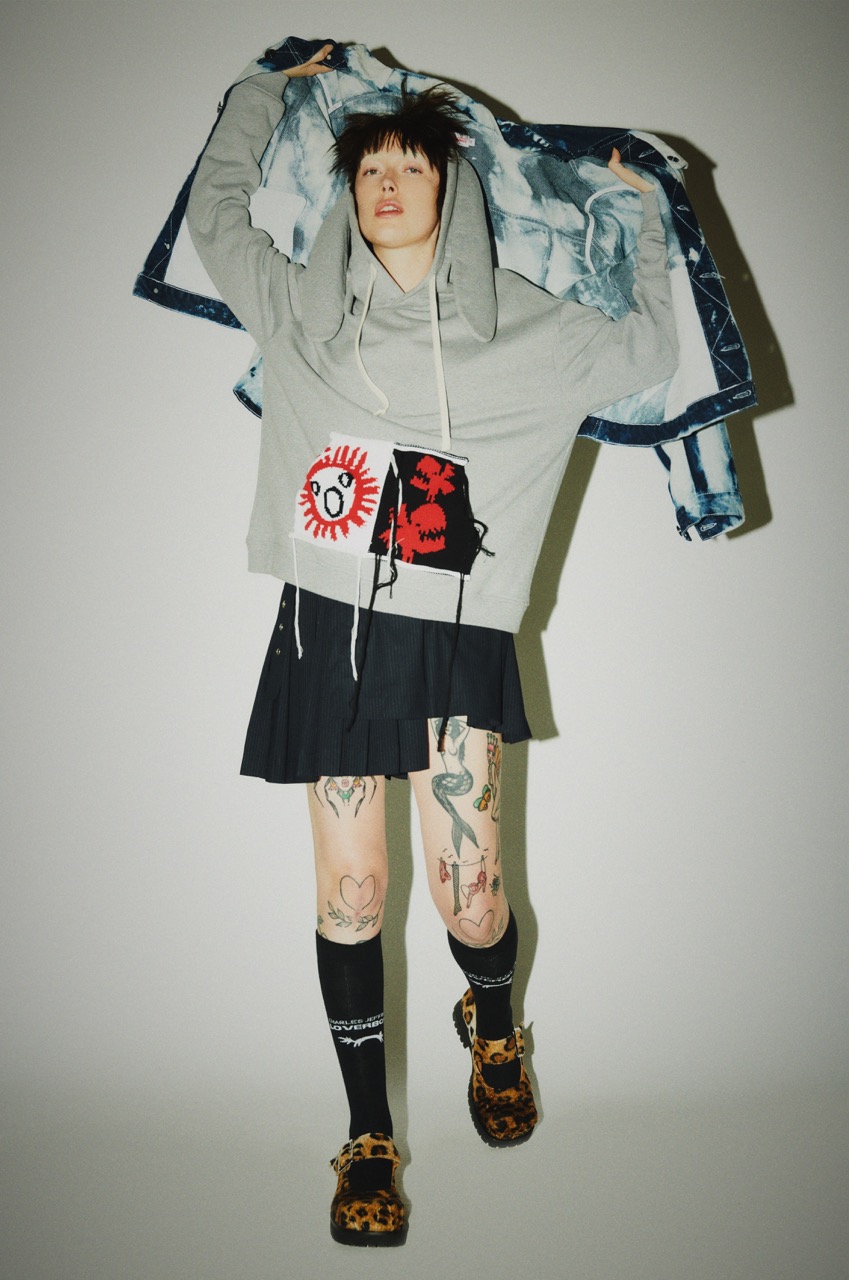
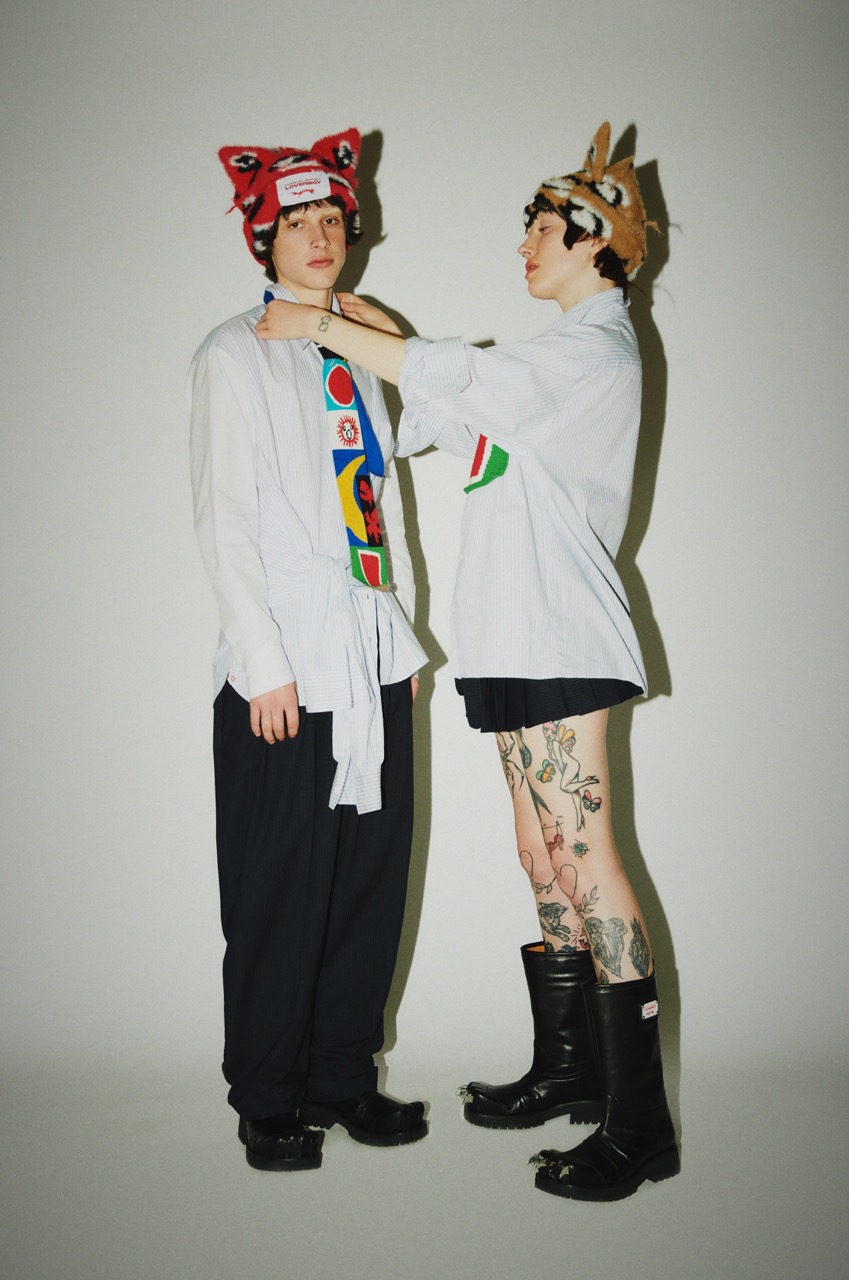
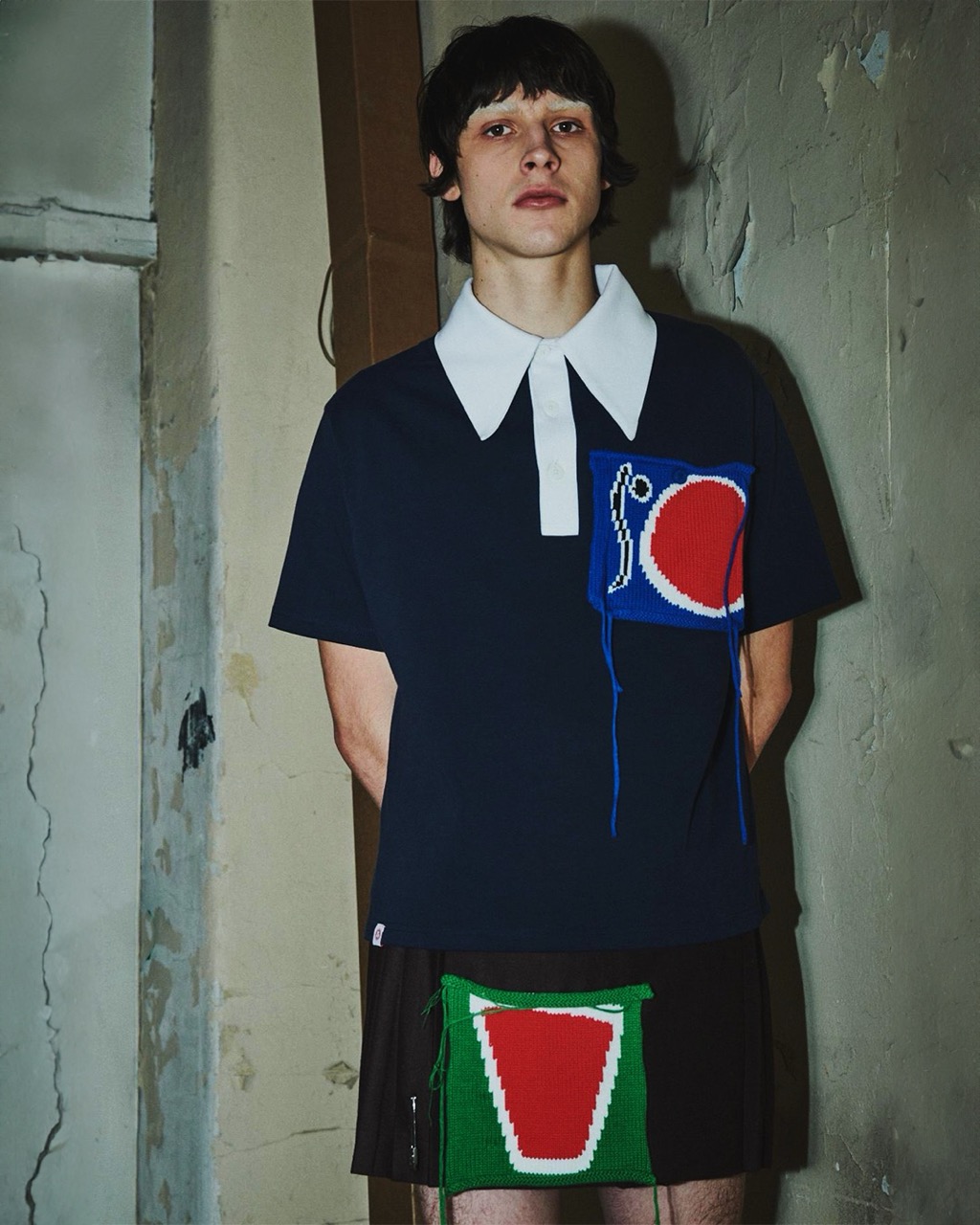
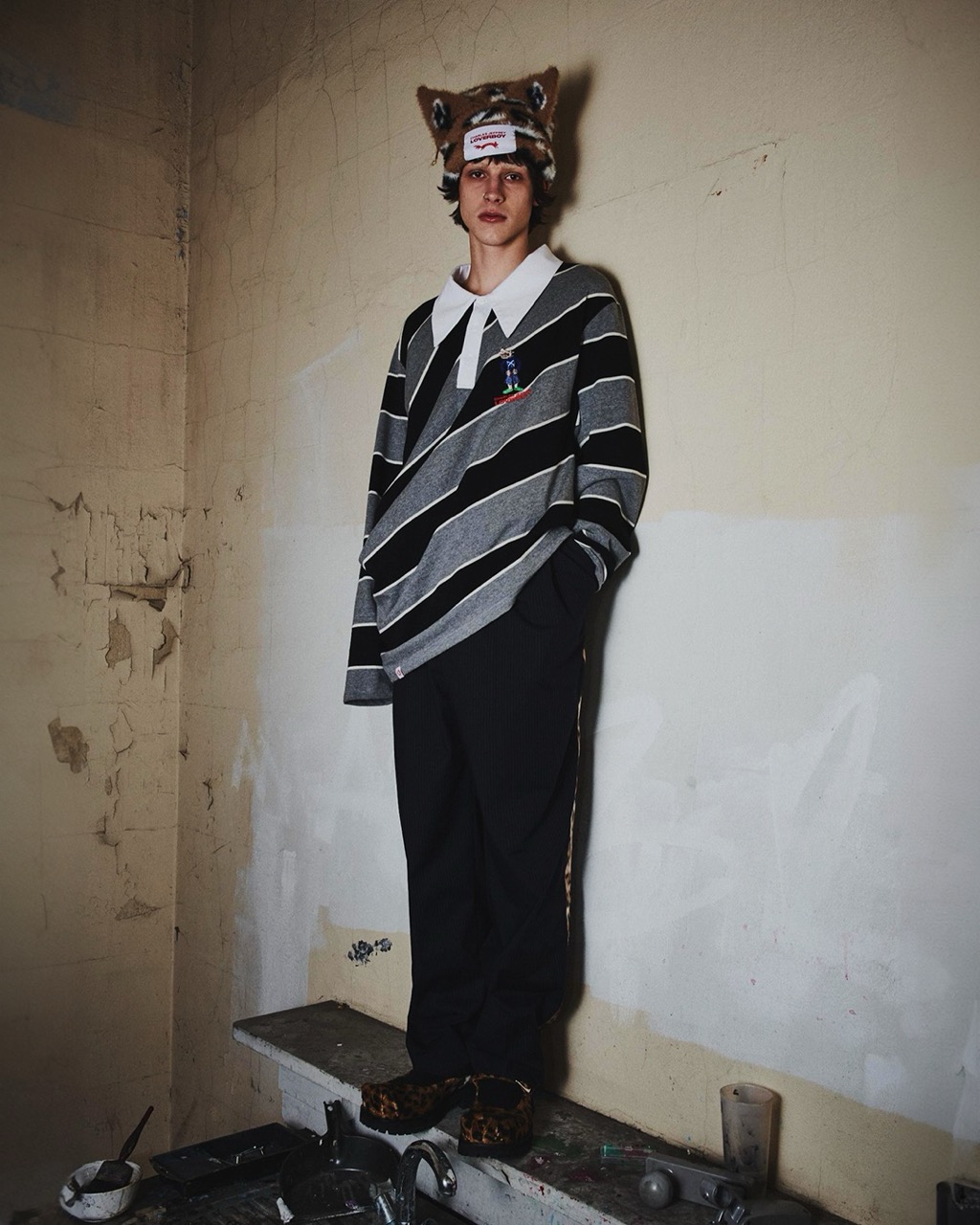
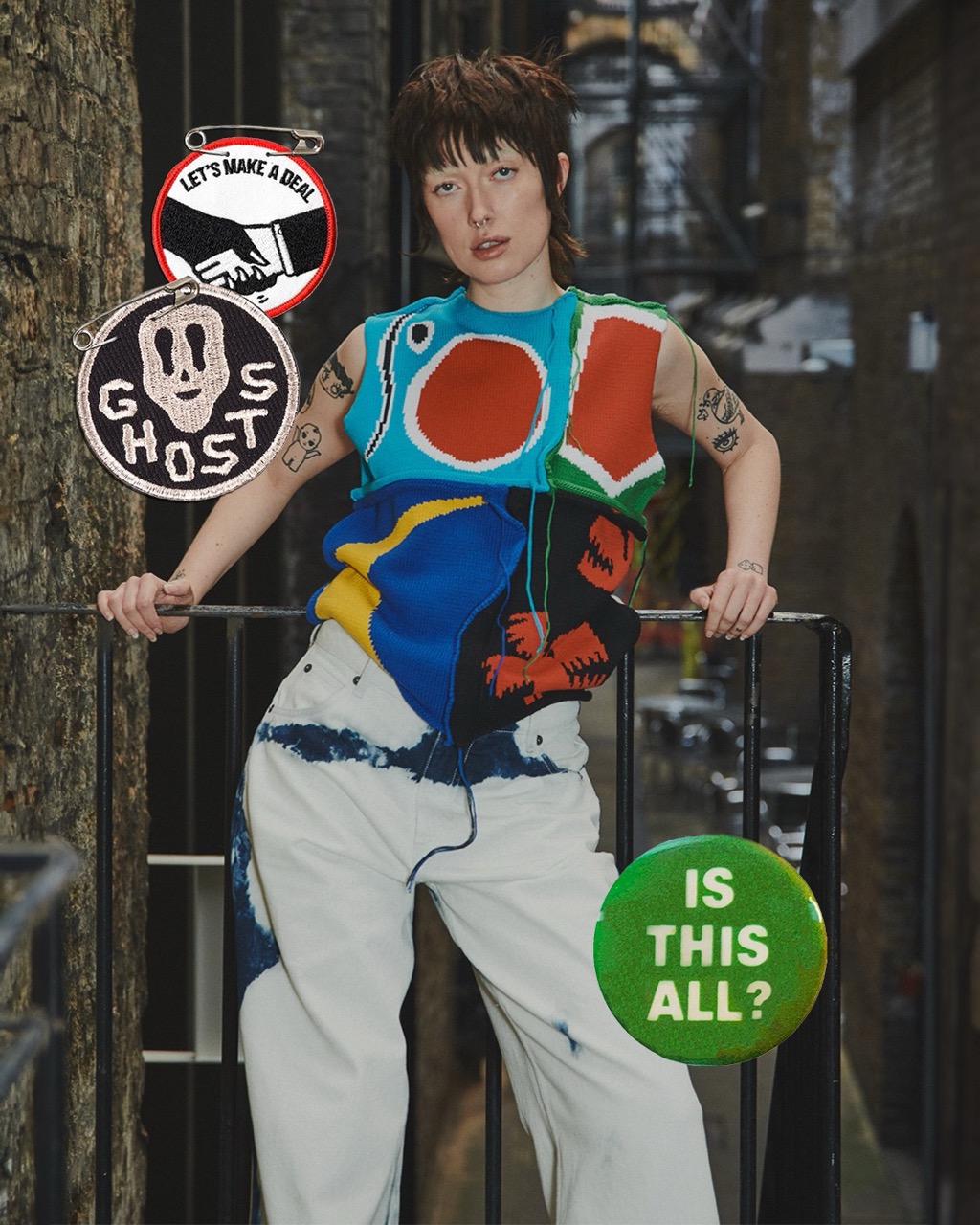
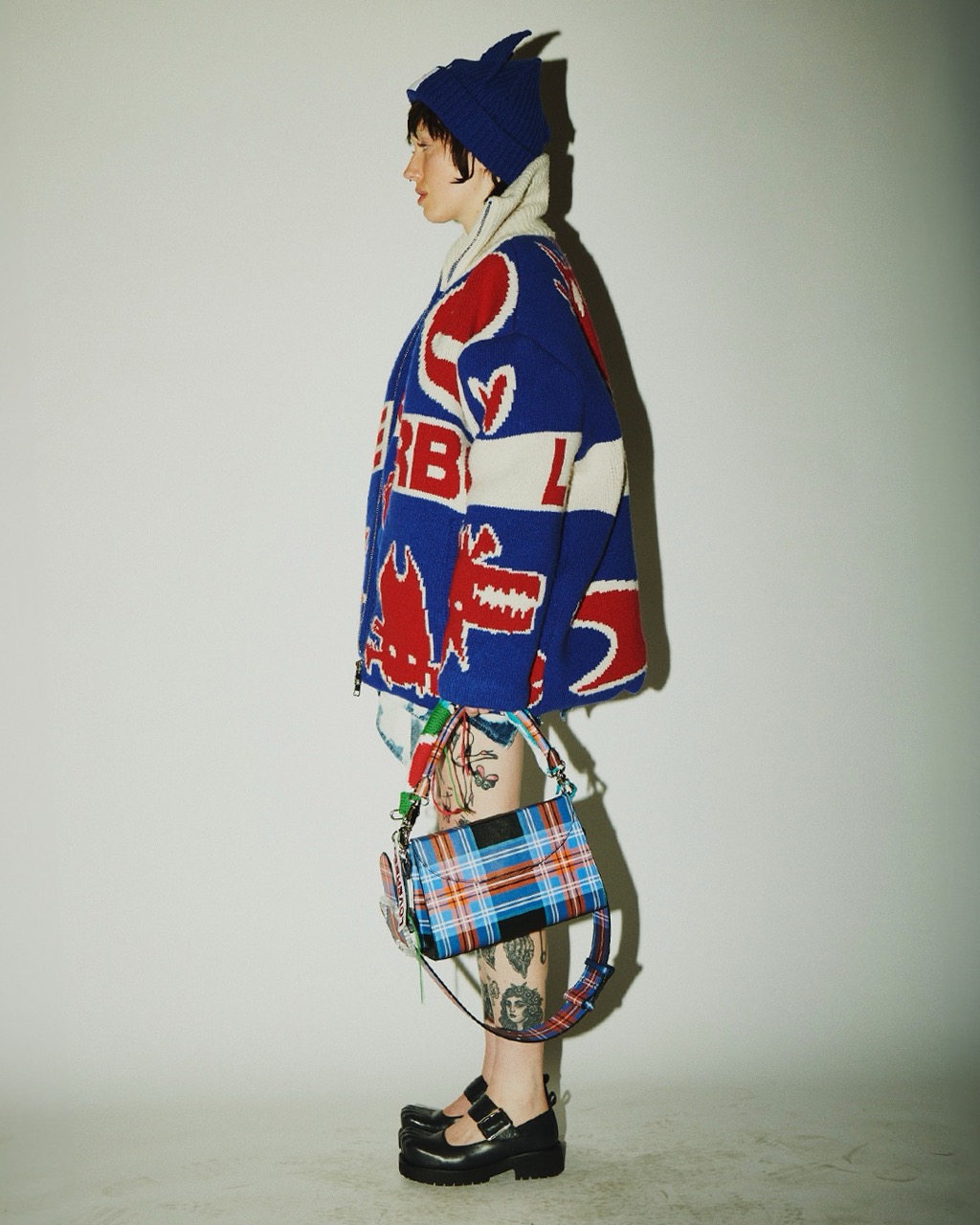
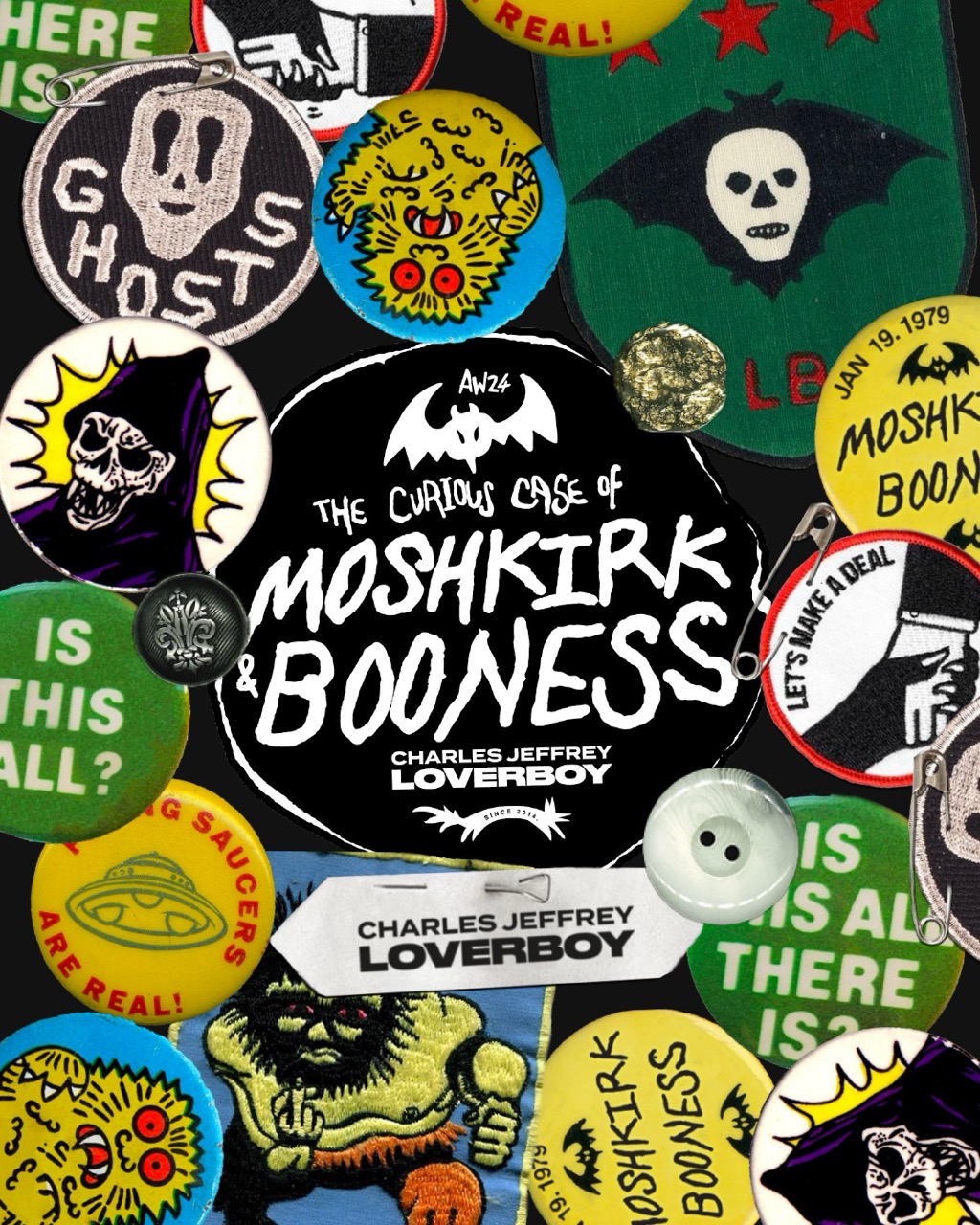
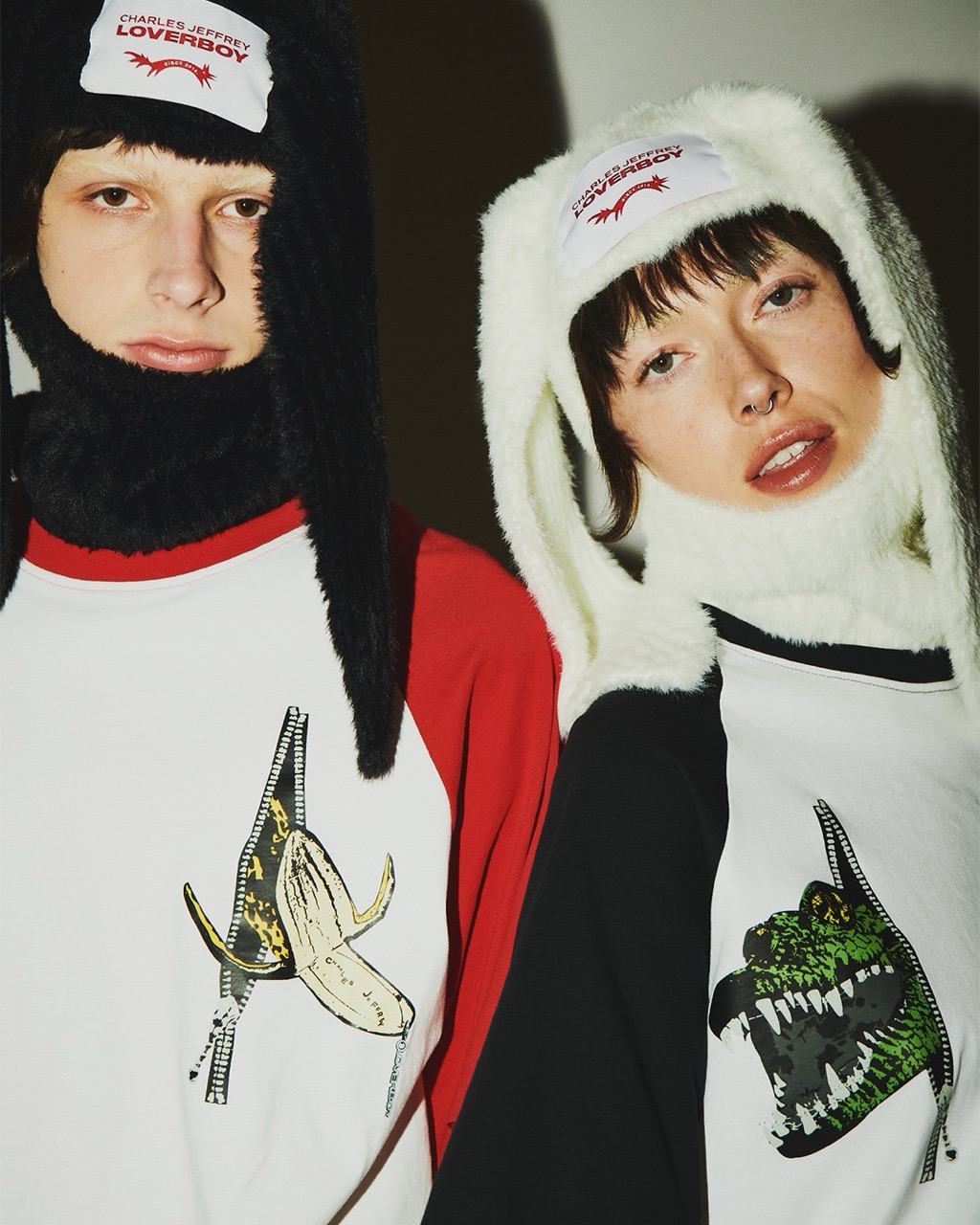
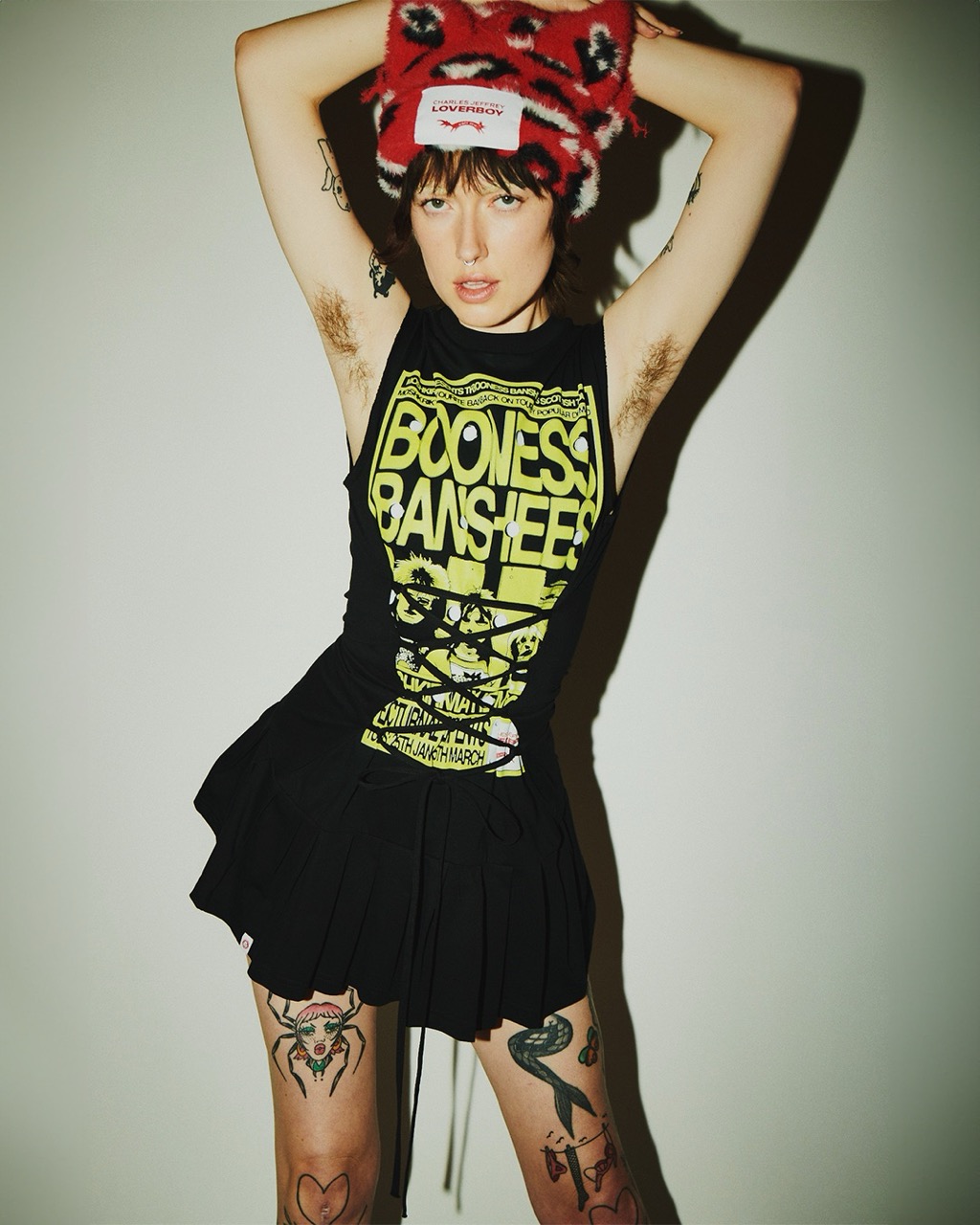
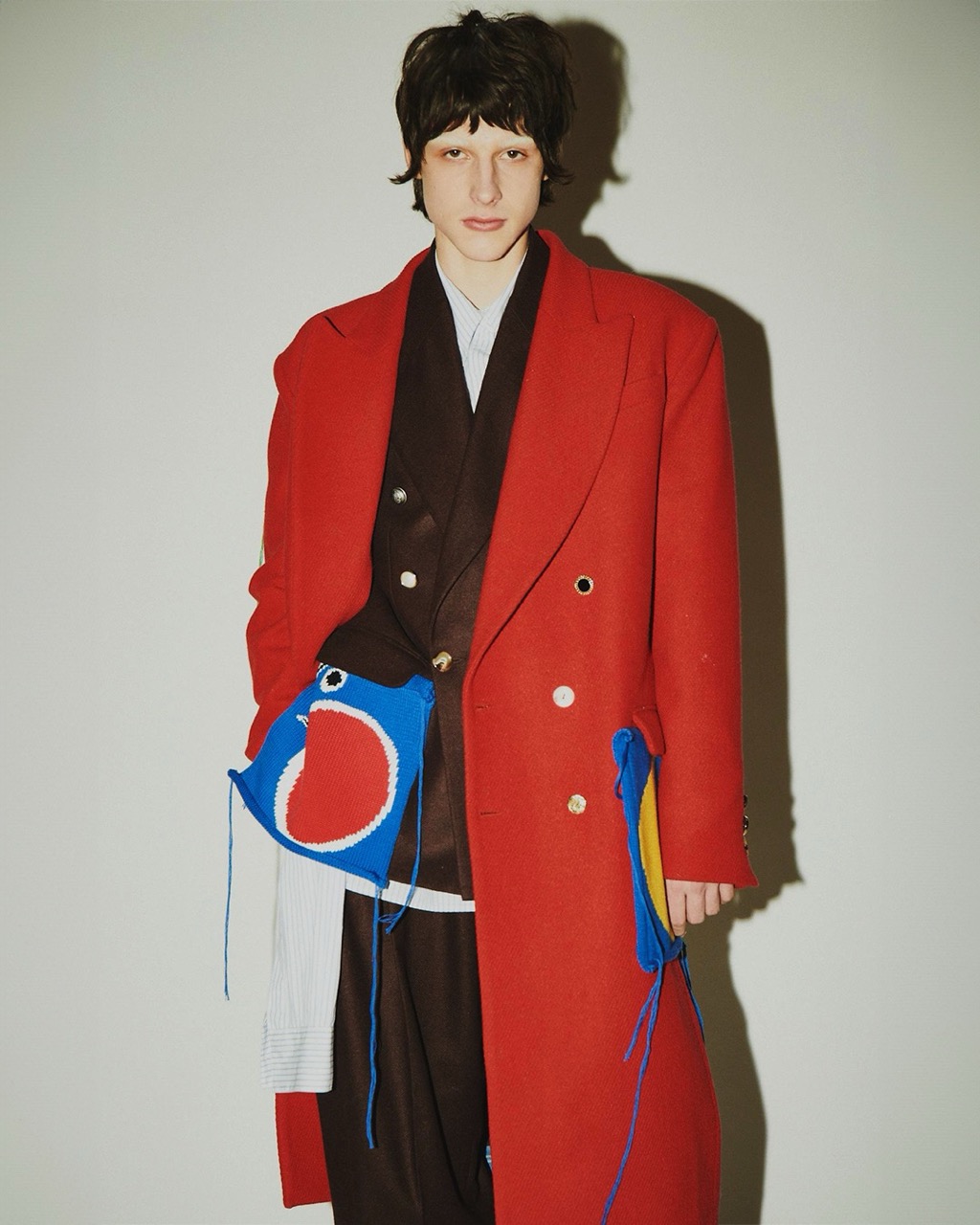
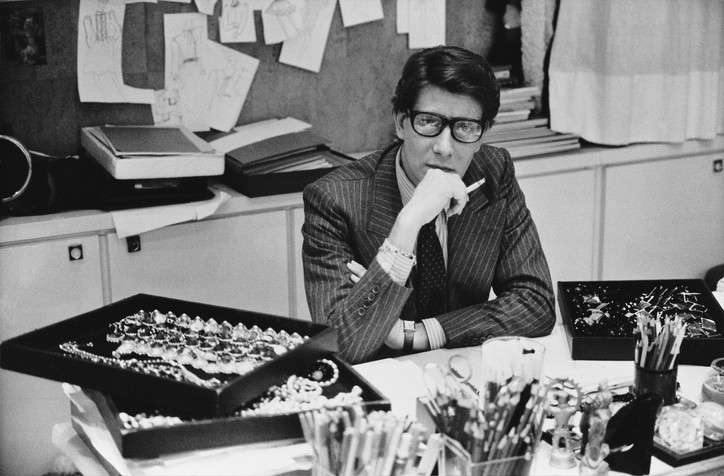
Yves Saint Laurent: Line and Expression was organized by the Musée Yves Saint Laurent Marrakech and Musée Yves Saint Laurent Paris, with a loan funded by Fondation Pierre Bergé – Yves Saint Laurent. These philanthropic and heritage extensions serve as a means to give back to the city that reimagined Yves Saint Laurent's collections and legacy.
After its opening in Morocco at Musée Yves Saint Laurent Marrakech, Line and Expression found its next home at the Orange County Museum of Art in Costa Mesa. From Morocco to Southern California, the intention was “to bring awareness into the next generation,” as emphasized by Director of Musée Yves Saint Laurent Marrakech, Alexis Sormin. “I know very few institutions in the US or in Europe, or in Africa, that are free to the public.” OCMA’s policy of free admission for all aligned with the mission to increase access and visibility for Saint Laurent’s archives, solidifying its slot as the home for the US premiere for the exhibition.
A prodigy of the late Christian Dior, Saint Laurent shared the same love for hand-drawing his designs. Each piece from Yves Saint Laurent’s collections traces back to a single sketch. In these archival sketches, the essence of certain fabrics and silhouettes, like the soft intricacy of a chiffon-pleated garment, are breathtakingly captured in “simple and pure” lines, to borrow the words of exhibition curator Gaël Mamine.
“Drawing is part of the process of creation,” Mamine says, and for Saint Laurent,-it was the first step. The archival exhibition explores the late draftsman’s eclectic and expressive collections from the period of his life when he reimagined haute couture.
Alexis Sormin further explains that “throughout [Saint Laurent’s] life, he would draw and draw and draw — sometimes redraw.” Even when a model was dressed in the prototypes of Saint Laurent’s garments, rather than “adding or subtracting” over the original sketch, the couturier modified the dress by redrawing the piece.
“He was perhaps more of a traveler by imagination than by movement into space,” Sormin adds. “Marrakech was the only place he would go to very often outside of Paris…and in Marrakech, he drew capriciously.”

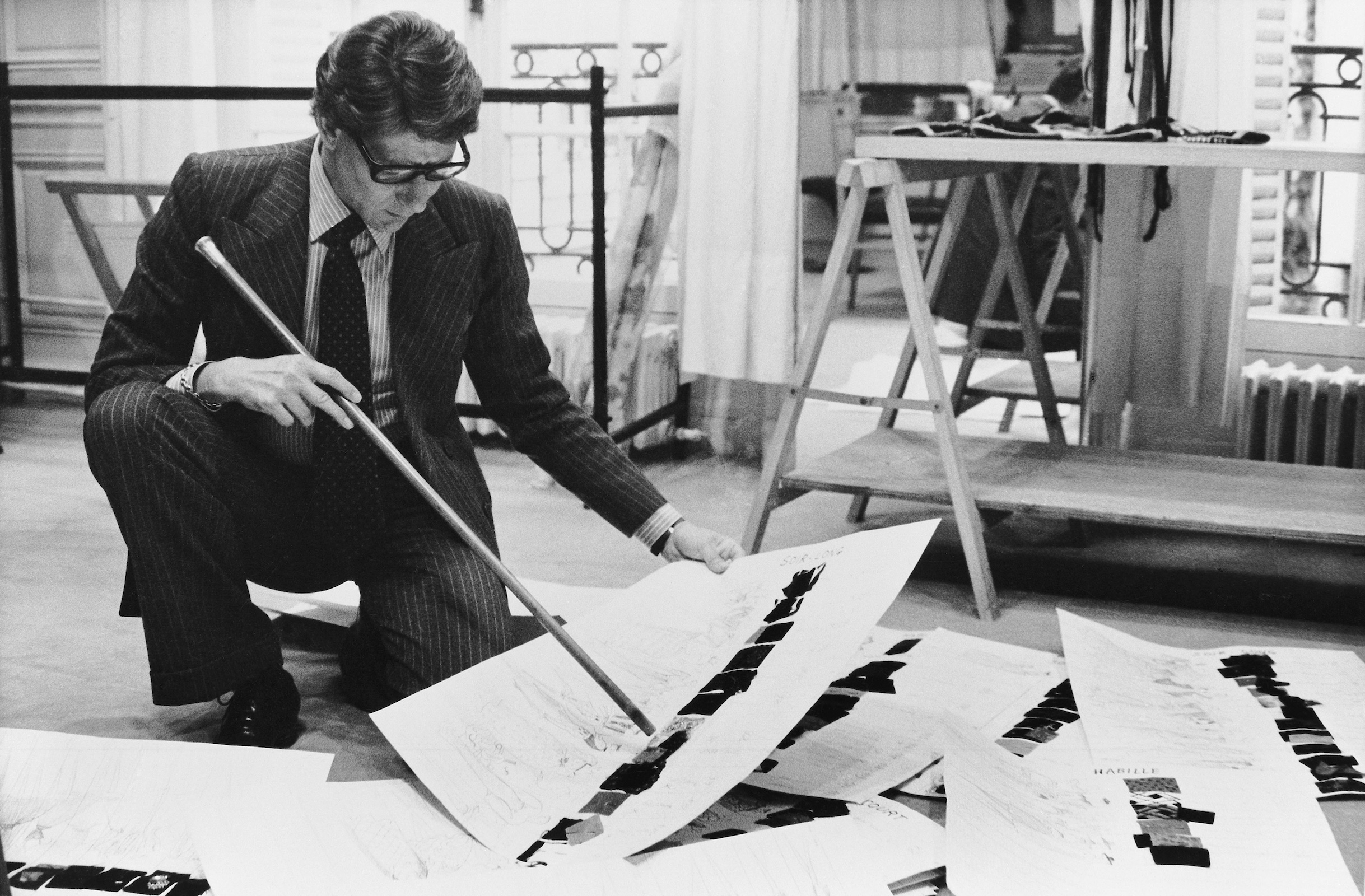
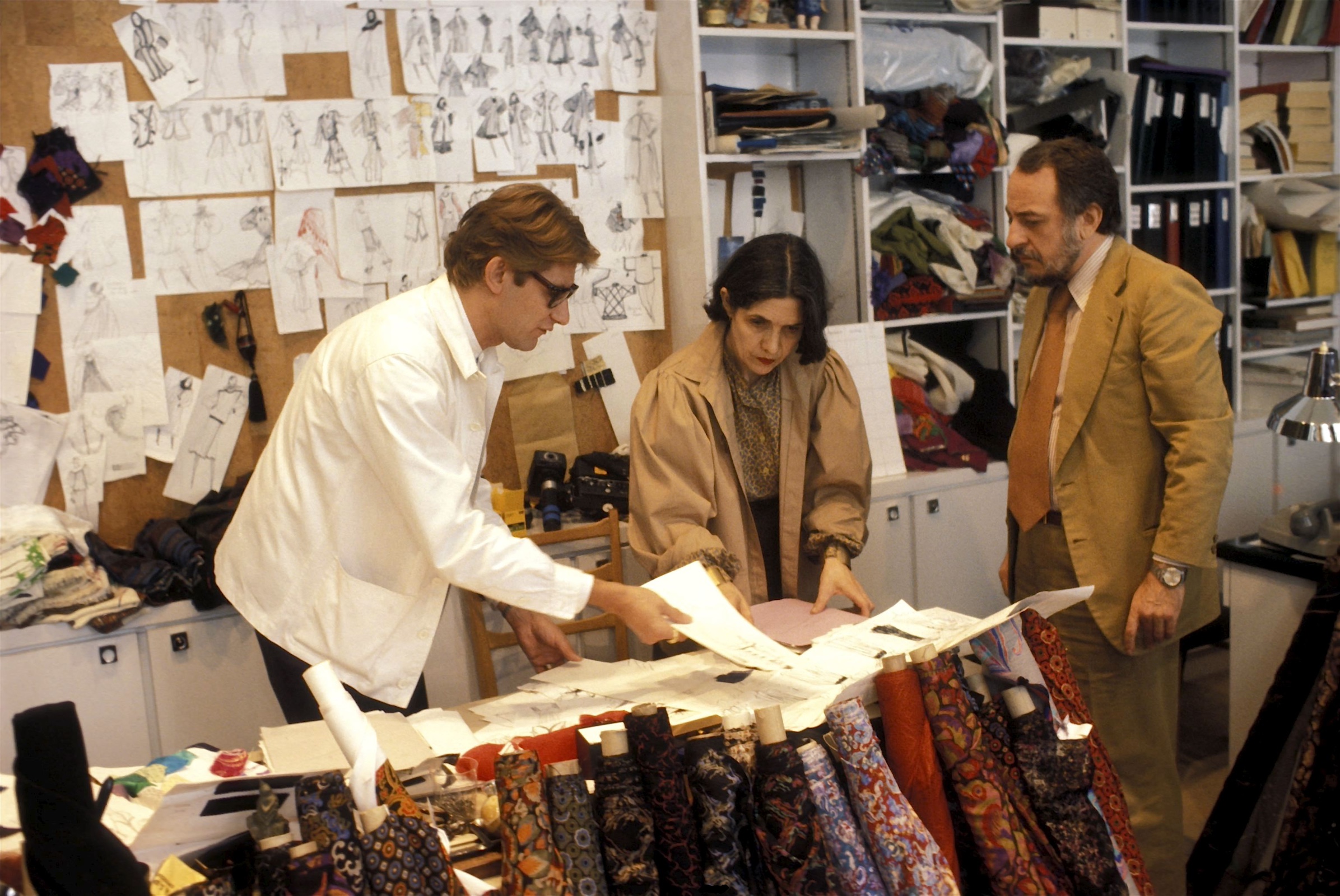
LEFT: Pierre Bergé and Yves Saint Laurent, Marrakech, late 1960s. All rights reserved. TOP RIGHT: Yves Saint Laurent in front of the collection boards for a fashion show, 5 avenue Marceau studio, Paris, 1986. All rights reserved. BOTTOM RIGHT: Yves Saint Laurent, Anne-Marie Muñoz and Pierre Bergé in the studio, 5 avenue Marceau, 1977. Photo: Guy Marineau. © Guy Marineau
Yves Saint Laurent was born and raised in French-occupied Oran, Algeria in 1936, and moved to Paris at the age of 18 after winning a competition for young aspiring designers.. Three decades later, the designer had cemented his name in fashion as the protegee of Christian Dior, and at the age of 21 took over as the head designer at Dior after Christian’s death in 1957. When Saint Laurent was conscripted into the French Army in 1960 to fight in the Algerian War. Hospitalized within a month of leaving Paris for a depression induced by the hazing from other soldiers, he learned he had been fired and replaced at the house of Dior. Once he was discharged from service, Saint Laurent returned to Paris, successfully sued the house of Dior for breach of contract, and subsequently founded the house of Saint Laurent with his partner, Pierre Bergé, showing his first collection in 1962.
By 1966, he decided to go on holiday with his Bergé, and the two fell in love with Marrakech, Morocco. The city bustled with tourism after the country gained independence from France the decade prior. After purchasing their first Marrakech home, Dar El-Hanch, Saint Laurent retreated from the world to sketch and architect thousands of timeless designs. Today, Musée Yves Saint Laurent Marrakech sits adjacent to Jardin Majoelle; a garden and villa complex the designer rescued from demolition in the 1980s, which now attracts roughly 800,000 visitors a year.
Gaël Mamine highlighted how the designer worked with his couture studio in Paris, where they analyzed and actualized his sketches into material garments. Designs were translated with fabrics, colors, and silhouettes, distilling into their physical form.
Line and Expression’s architecture integrates Saint Laurent’s design practice and process into the physical exhibition. Following the design process, while wandering away from framed pages, you’ll be met with an elegant and expansive assortment of garments and accessories on display. Ranging in origin from 1963 to 2001, these pieces encapsulate fabrics, colors, and other materials that transcended into physical prototypes. In many ways, these qualities are rooted in Saint Laurent's stays in Morocco. The haute-couture collections at Line and Expression embody that reminder of cultural heritage:lush colors, caftan silhouettes, hooded dresses, rich natural stones, and layering silk fabrics. Exploratory 1970s sketches on display and 1980s haute-couture suits and evening gowns draped with capes speak to the way the courtier introduced more fluidity into his womenswear ensembles. These influences stem from the men’s garments like vests and capes that he saw during his time in Marrakech.
Yves Saint Laurent believed he saw color in a new light during his stays, as Morocco's sun made the hues of everyday Marracech reflect in a new way for the designer. The exhibition showcases the blues, greens, pinks, and yellows that he introduced in monochromatic looks and innovative combinations during that time. The bright colors weaving between the black and white pieces are the mark of Marrakech on Saint Laurent’s legacy after making the city his second home.
Yves Saint Laurent: Line and Expression is on display from July 3rd, 2024 - October 27, 2024, at the Orange County Museum of Art in Costa Mesa, California.
